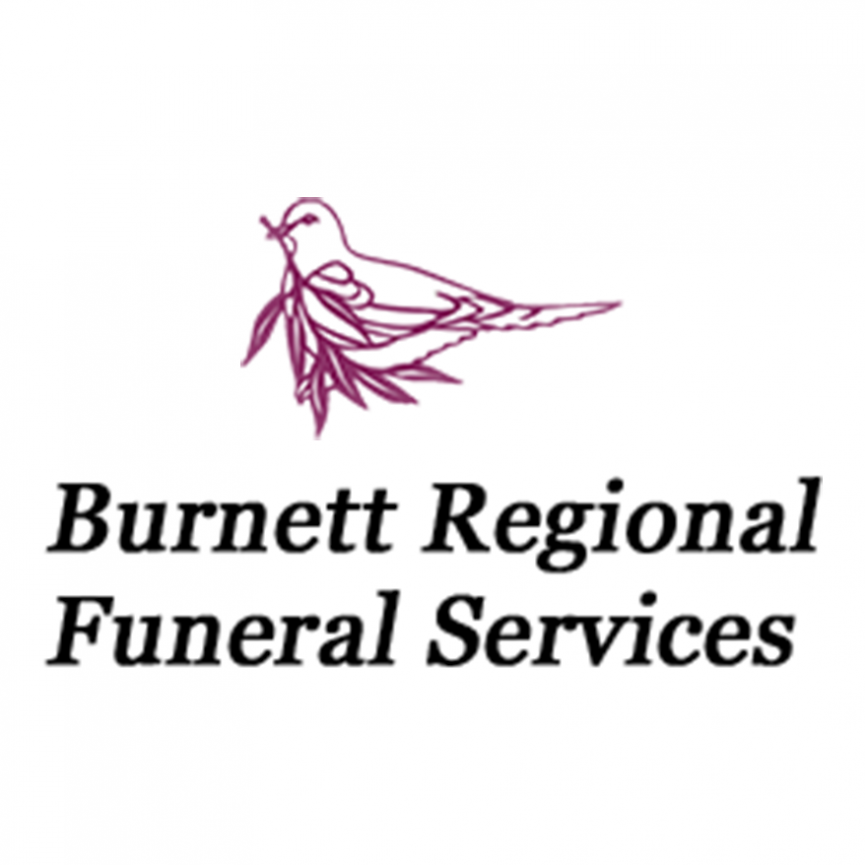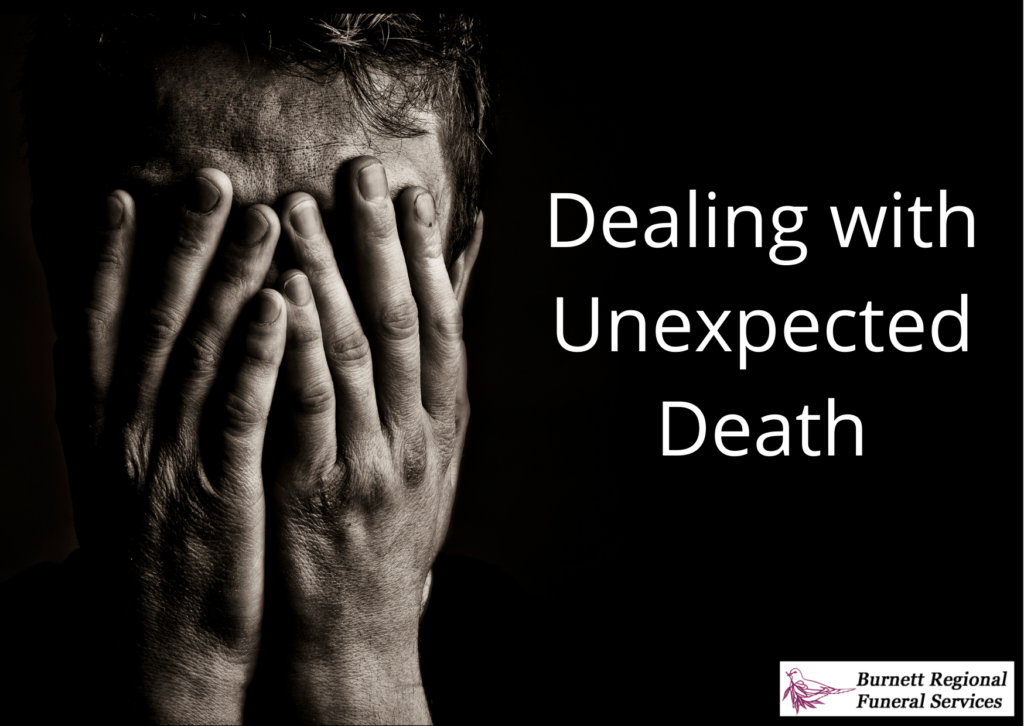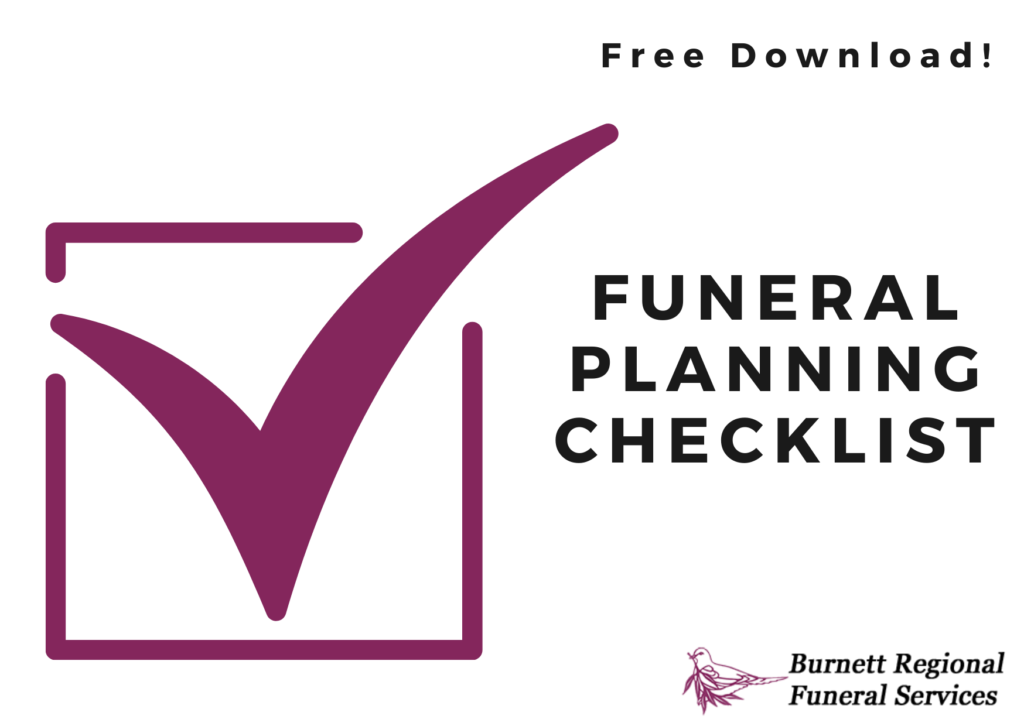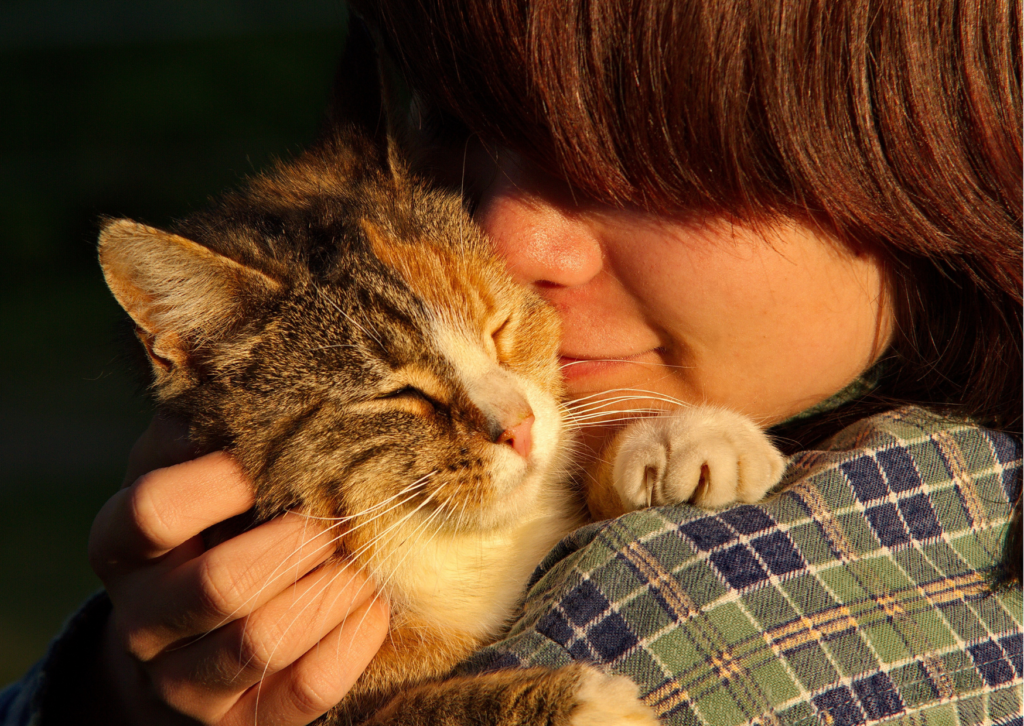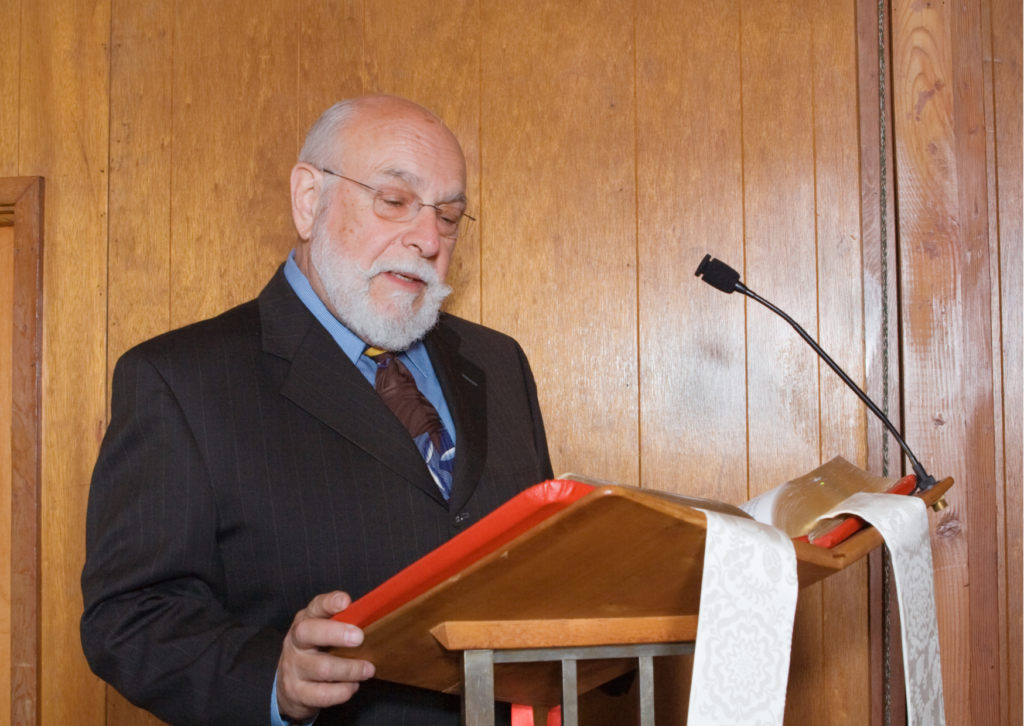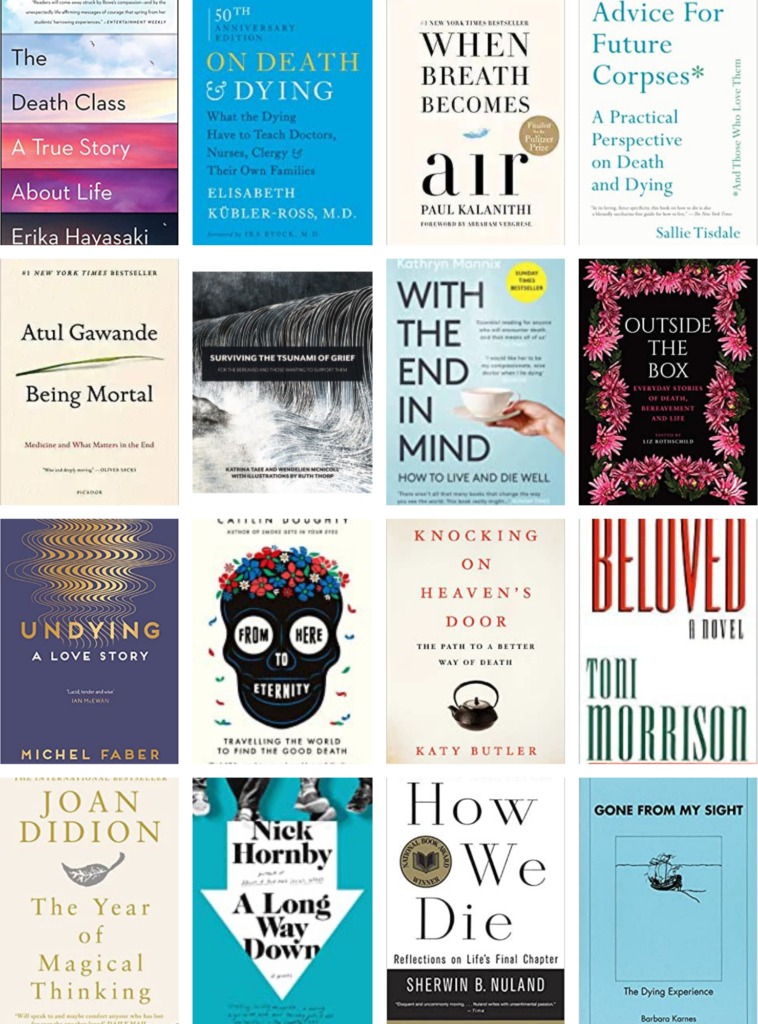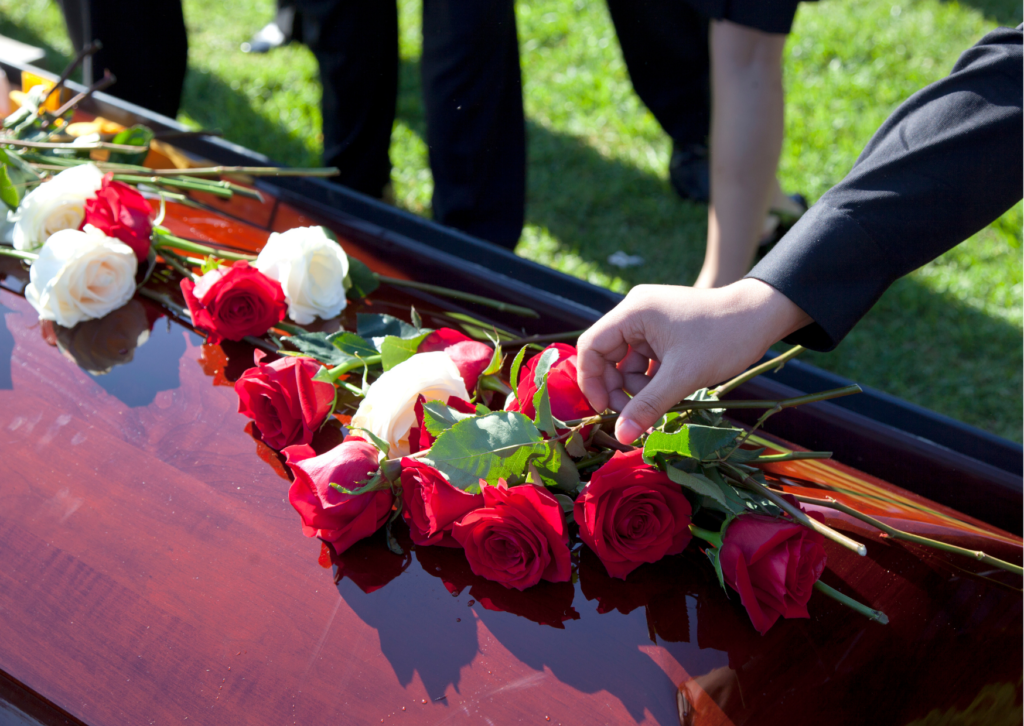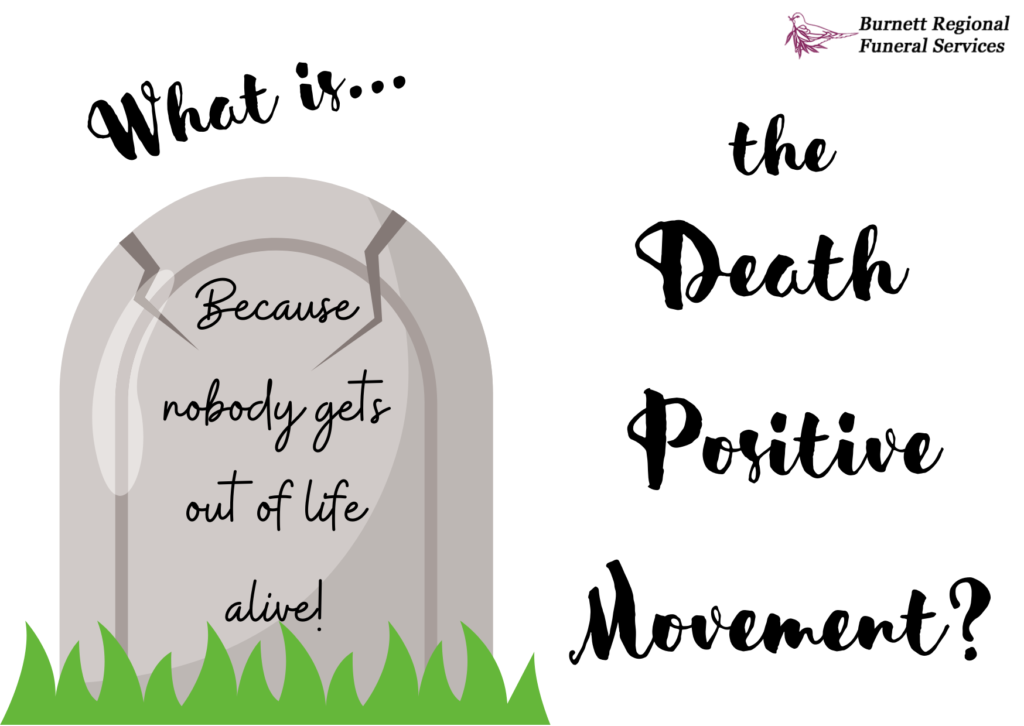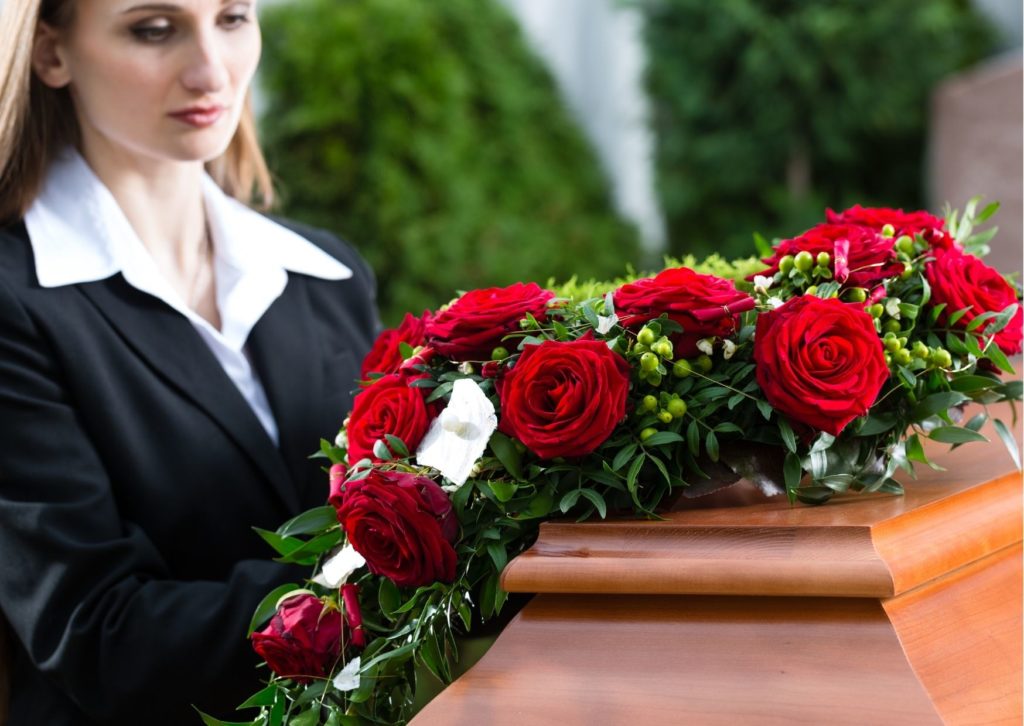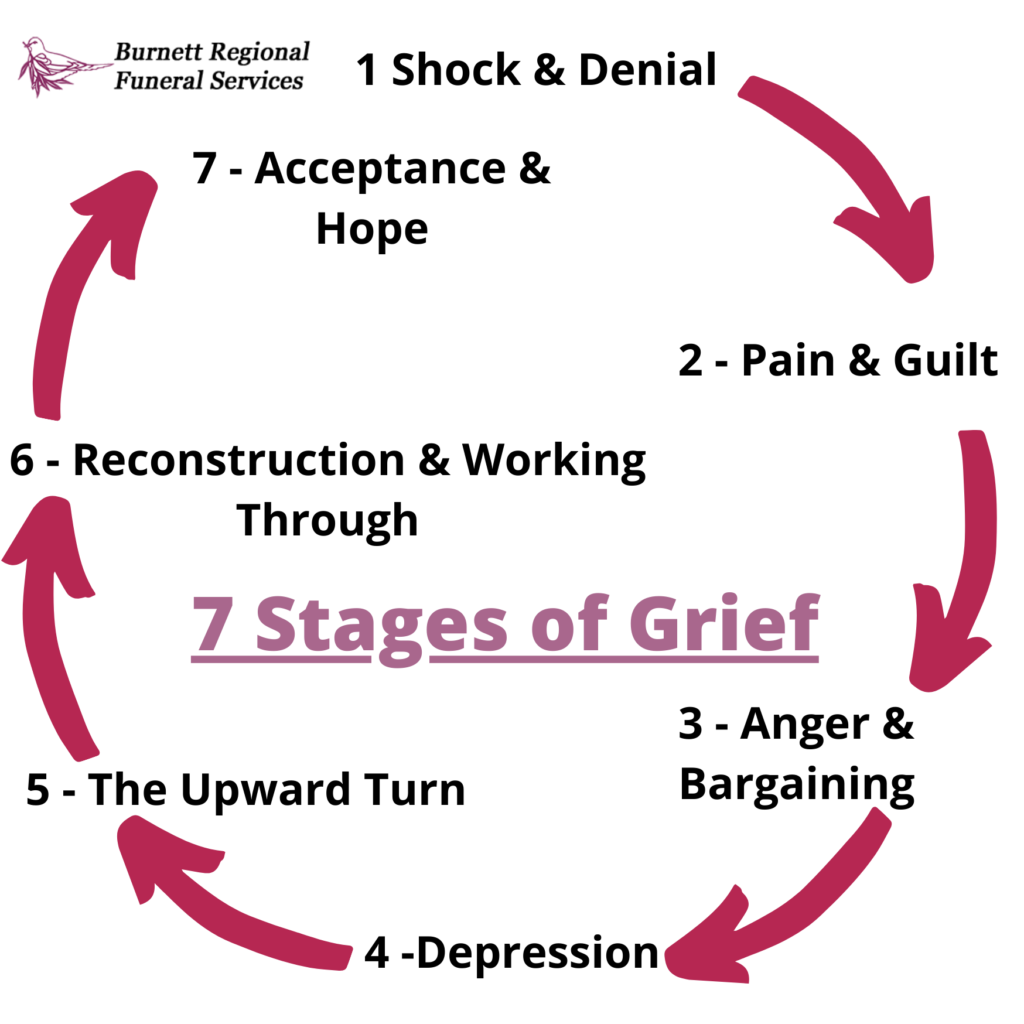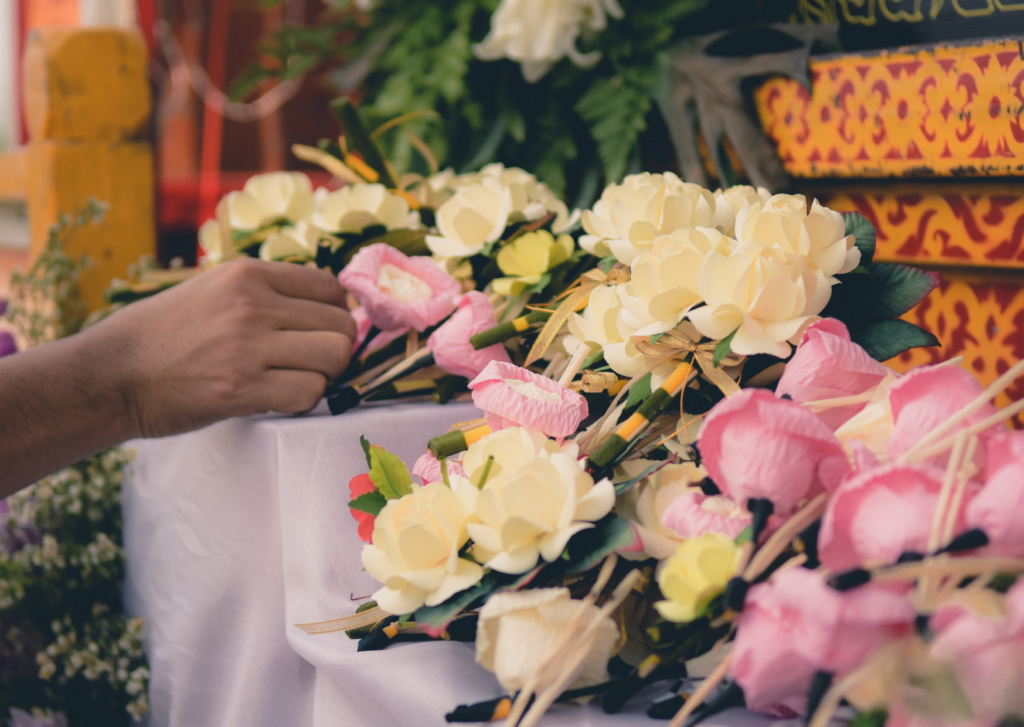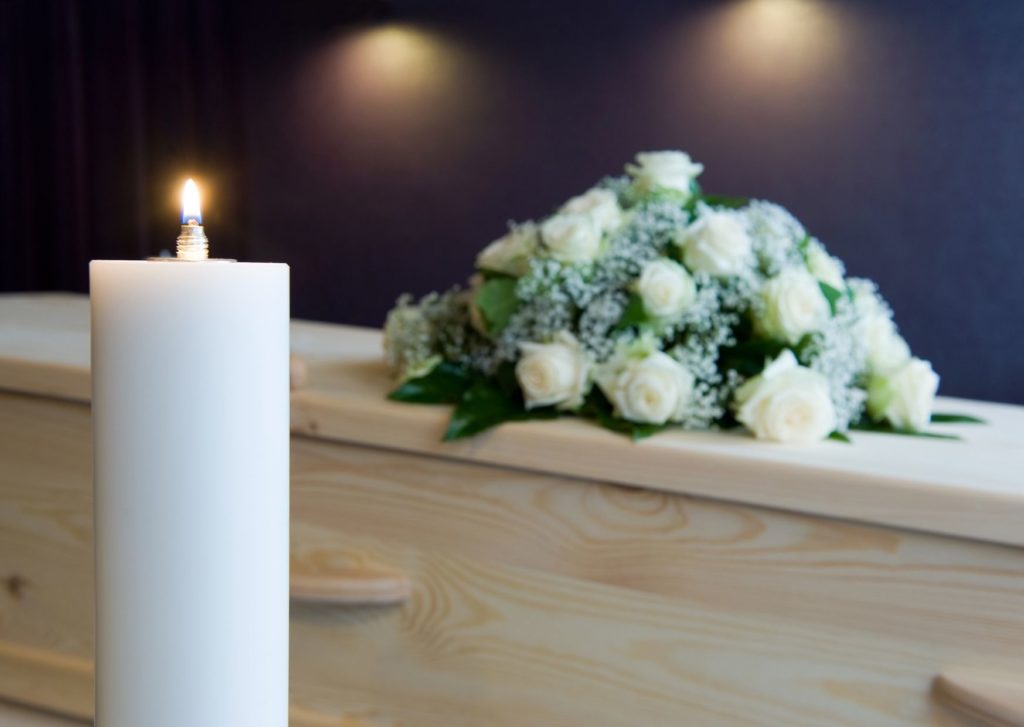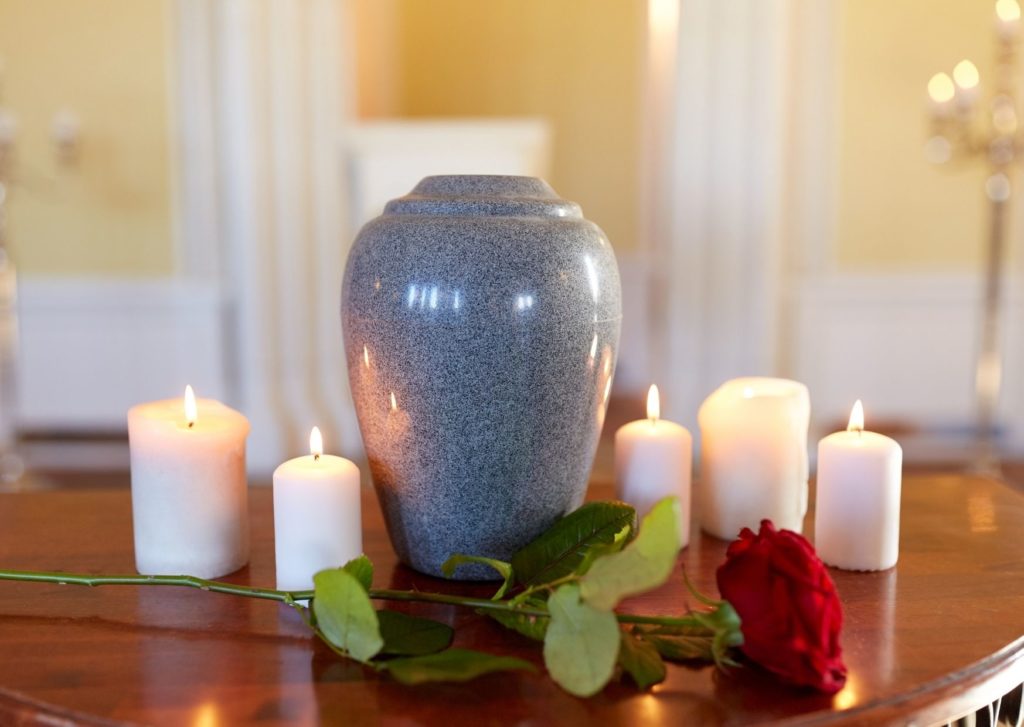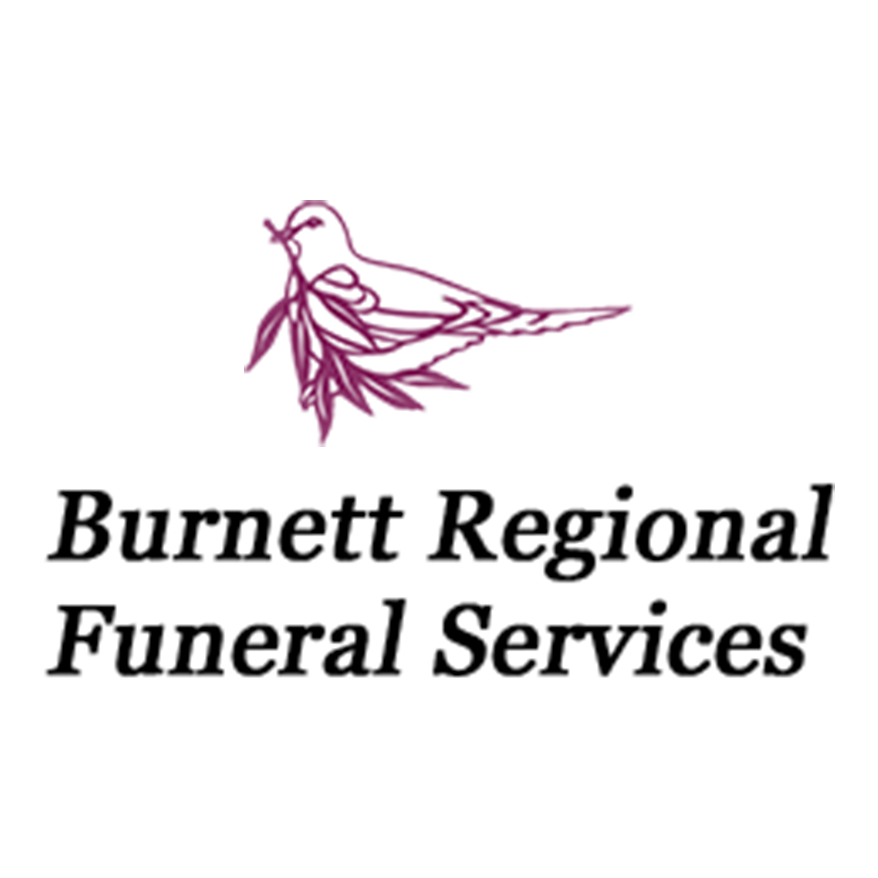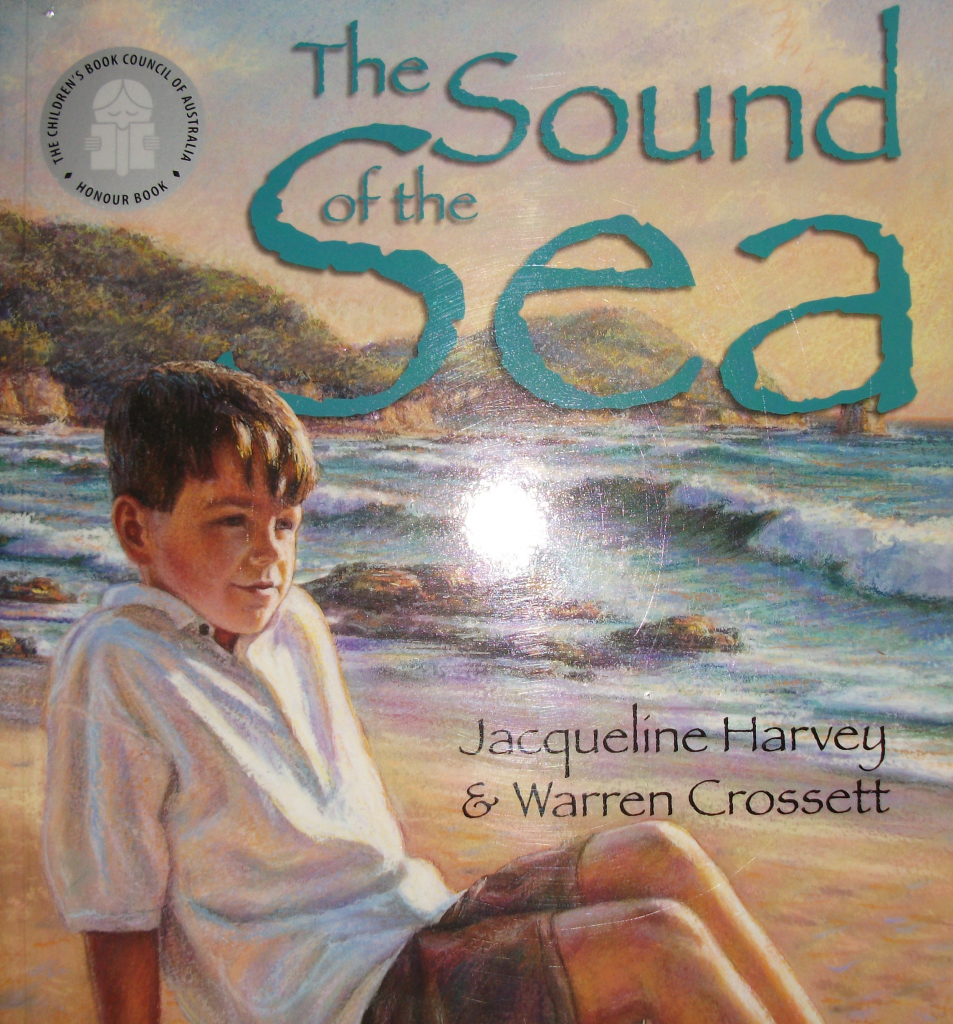Welcome to the Burnett Regional Funeral Services Blog.
What to do when someone you love is dying
How do you know what to do when someone you love is dying? Losing someone you love is one of the hardest experiences you will ever go through. When that time comes, please remember that you are not alone. The most important piece of advice we can give you about what to do when someone you love is dying is to take your cues from your loved one. Listen to them. Perhaps they want to talk about it; perhaps they don’t. Maybe they want to spend every moment they have left living life to the fullest; perhaps they want to spend their time surrounded by the people, things and animals that they love. How we respond to death is influenced by our own life experiences and beliefs around death – everyone responds differently. We encourage families to have conversations about death and what their final wishes are long before that time comes. Often we find that people who are dying want to talk about it, but they are worried about upsetting the people that they love. They may worry if they talk about their impending death that their loved ones will worry they have given up hope. While these conversations can indeed be difficult, it’s important to allow these discussions to happen and can be a valuable experience for both you and your loved ones. When someone you love is dying, their needs and wishes must be respected and come first. It can be easy to get swept up in your own emotions, but it is vital that everyone involved remembers that it is the person dying who should remain at the centre of all conversations and actions. If someone you love is dying, you might not feel prepared or ready for them to go. Please know that this is normal, and support services are available to help you during this time. Disease related charities such as the Cancer Council, or your local hospital’s palliative care team will be able to give you guidance and support during this time, not only about how to look after the person in your care, but also about how to look after yourself. If you’ve never lost someone close to you before, being around someone who is dying can be a frightening experience – if you feel this, it’s important to realise that it’s normal, and not to be ashamed of your fears and feelings. We suggest that you learn what to expect in the days, weeks and months ahead to allow you to ease your fear and confusion. Doing so will also help you to plan for the journey you and the person you care about are to go on together, and for the feelings and experiences that will happen during this time. Talking with someone who is dying We understand that talking with someone who is dying can be frightening. It’s normal to feel anxious, especially if the person is someone you love. Virtalhospice.ca suggests letting the person know that you are … Read More
Is it normal to worry about someone you love dying?
Wondering whether it is normal to worry about someone you love dying is a topic that comes up often. It’s the type of worry that no-one is immune to, yet so many of us hide our fears, concerned that it might not be normal to feel the fear and anxiety around loss that we do. It’s also common to fear death in general, and to fear your own death and leaving behind those you love. Sometimes, this fear can become a serious and debilitating phobia – Thanatophobia. In this article, our focus is on fearing the death of a loved one. This kind of anxiety falls into two different categories, and they both require very different approaches so let’s start by identifying the two. According to psychology today, this kind of fear either focusses on worry when a loved one is at a higher than usual risk of death, for example, if they have been diagnosed with cancer or a terminal illness. However, you can also feel fear and anxiety about a loved one dying, even though they are not at any particular risk for dying. Despite that, you might not be able to stop worrying about it. Let’s discuss the first scenario around death-based anxiety first. Psychologist Jade Wu, points out that knowing death is inevitable and actually accepting it are two very different things, and one does not necessarily lead to the other. If you’re facing a situation where someone you love is dying, it’s important to allow yourself to feel the full range of grief. It’s when it becomes paralyzing that it is a problem and you should consider seeking support. Signs of this include an inability to enjoy the time you have with them now because you’re so focused on their death and being unable to manage basic day to day life and self-care. To help, Dr Wu suggests “climbing down the what if tree”. “The what-if tree has a sturdy trunk with strong roots at the bottom—that’s the present moment,” she writes. “It’s safe there; you feel grounded. As you climb the what-if tree, with each branching what-if scenario the branches get thinner and your footing gets shakier. This place poses more of a risk. At some point, it’s not useful to think that far ahead.” That doesn’t mean putting off important topics like decisions around medical and end of life care, however, setting aside time to address your to do list rather than allowing it to become all-encompassing can be helpful. It’s also important not to avoid having conversations about death. Over the past year, we’ve published several blog posts around how to discuss death and these can offer you some insight into having those awkward conversations. You don’t have to have a loved one with a terminal diagnosis in order to fear their death. When you experience anxiety about death of a loved one who is not currently at a higher risk of death, Dr Wu says it’s important to find ways to … Read More
Dealing with Unexpected Death
Coping with the death of a loved one is never easy but dealing with an unexpected death can be extra challenging. When a death is expected there is time to prepare. There is the opportunity to say goodbye, and to make a certain level of peace with what is to come. But when a death is unexpected, those left behind are left without those opportunities. A sudden, unexpected death can happen for a wide range of reasons – it may be a heart attack, stroke or other medical emergency, an accident or suicide. Regardless of how it comes about, dealing with a sudden death is challenging to even the strongest person While most people can and will experience shock, confusion and grief when someone close to them dies, these feelings can be amplified if a death is sudden and unexpected. Each situation will carry it’s own emotional difficulties, depending on the circumstances of the death. In fact, any sudden or traumatic death will bring with it a series of challenges on one’s internal resources. You might also experience disbelief, hope that news of the situation is wrong (particularly in cases where physical evidence is absent, for example, someone missing at sea or a plane crash), absent grief (where what has happened has not yet registered in your mind), regrets (particularly around the inability to say goodbye, things you wish you did differently, or things that were said or went unsaid), guilt, anger or a sense of helplessness. There is no right way to cope, and you’ve ultimately got to do what feels right for you, but here are some ideas that might get you started on the road to processing your grief. If you were with the person when they died, you might feel the need to share your story. While you might worry this could be frowned upon, we’d like to reassure you that it’s a perfectly normal response. You may like to seek the help of a registered professional, for example, a counsellor or psychologist, or you may prefer to confide in a trusted friend. You might also find that it’s important for you to be honest in sharing you experience, rather than glossing over parts of the story. If you feel the need to talk through your experience, make sure that it’s with a person who you know will make you feel safe and supported, whatever that may look like for you. It might also be helpful to share your feelings and experiences with other people who have gone through similar experiences. It’s important to surround yourself with people that understand that grief is a process and it will take time to make sense of what has happened. It is important during this time that the bereaved person feels loved, supported and listened to. When you’re dealing with an unexpected death, its important that you monitor your physical and mental state, and seek help for any health issues that may arise during this time of distress and … Read More
How to pre-plan your own funeral
Pre-planning your funeral has become increasingly popular over the past few years, so it’s no surprise the majority of questions we receive are about how to plan your own funeral. Many people are surprised to find that not only is pre-planning you own funeral simpler than most people realise, but in fact, there are many advantages to doing so. One of the biggest advantages of pre-planning you own funeral that causes many people to take the leap is the fact that you can decide how you want to be farewelled from this life. When you pre-plan your funeral with Burnett Regional Funeral Services, we sit down with you and talk you through your choices. During our consultation we will discuss everything from whether you’d like to be buried or cremated, where you’d like to be buried or where (and if!) you’d like your ashes to be scattered to the music you’d like to be played, who you’d like to give the eulogy and who should carry your coffin. However, the biggest advantage to pre-planning you own funeral is that it takes an enormous amount of pressure off your loved ones during what will be one of the most difficult times of their life. Let’s face it, losing someone you love is so hard, and having to make decisions around funeral arrangements can often result in additional anxiety, stress and even arguments that could have been otherwise avoided. Pre-planning your funeral allows you to leave one final gift to your loved ones – the gift of not having to worry because everything is already done. I know what you’re thinking – that all sounds great, but how do I actually plan my own funeral? The first step is to get in touch with us. We will make an appointment for a member of our caring and friendly team to meet with you at your home or our office, where we will take pen to paper and help you to decide exactly what you want for you funeral. Based on the information we gather, we will be able to provide you with a quote and advise you on your payment options. If you are looking for a longer term payment option, we work in partnership with Flexible Funeral Benefits, a company based in Bundaberg, to help you pay for your funeral over time rather than in one lump sum. It can be helpful to start thinking about what kind of funeral or celebration of life you’d like before your initial meeting with us. Some of the topics we will discuss with you at our pre-arrangement meeting include whether you would like to be buried or cremated and where you would like to be buried or what should happen with your ashes, what kind of coffin you would like, whether or not you would like a funeral service, what kinds of flowers you’d like, any poems, reading and music you’d like, who you would like to do those readings and, of course, any … Read More
Free download – Funeral Planning Checklist
Today we have a handy free download for you. We know how stressful it is planning a funeral – it is one of the most difficult and overwhelming things you will ever face in life. We’ve created this funeral planning checklist for you to help you to go through what you need to do, step by step. There are no catches – you don’t have to sign up to anything, you won’t get added to any email lists. We wanted to make this as simple and accessible as possible, so all you need to do is click on the button below and hit download.
Dealing with the loss of a pet
Pets can be a wonderful and much loved addition to any family, however many people find coping with the loss of a pet almost as hard as dealing with the loss of a human. While Burnett Regional Funeral Services does not offer services around pet death, burial and cremation, we understand how difficult this time can be. In this article, we’ll talk about things you can do to help cope with the loss of a pet, and different things you can do to memorialise your lost furry friend. When we lose a person that we love, other people accept our grief and are generally very understanding. Unfortunately, when we lose a pet we are not always met with the same level of understanding and kindness. Animals can be very central in our lives – they are our companions, our guides and sometimes our very best friends – however sometimes this cannot be understood by other people who can’t see why you are grieving over ‘just a pet’. As pet owners ourselves, if you’re grieving the loss of a pet, we see you and we understand. Many humans forge powerful bonds with their pets – they love you unconditionally and can make even your worst days seem better, so it makes perfect sense to grieve when they die. The Stages of Grief The stages of grief are just the same, no matter whether you’re grieving a human, an animal or a situation. Initially, you may experience denial and a feeling of numbness. This is a normal defence mechanism that protects you from the flood of emotions that come with loss. This may turn into anger – this is when reality starts to sink in, and start to feel the emotion of your loss. You might feel frustrated, helpless or cheated, and this may turn into anger directed at yourself, someone or something else or even the animal that has passed away. With time, anger may give way to bargaining. You might start to think “what if I did something differently” or “If only I had done…”. You might even find yourself trying to make a deal with a higher power, and again, this is a normal response to grief. Sadness may set in as you begin to understand the impact of your loss on your life. You might feel tearful and cry, struggle with poor appetite, experience sleep issues and feel sad, lonely and regretful. After a period of time, which is totally individual to the person who is going through the grief process, you will come to acceptance. This doesn’t mean that you are not sad, but you have accepted your loss and that you can and will move on with your life. Remember, there is no right or wrong way to grieve, and no correct amount of time to grieve. Some people will grieve the loss of their pets for days, others weeks or even years. Tips for coping Reach out to someone who you know will lend a … Read More
Poems and Readings for Funerals
Poetry, quotes and other kinds of prose are often used during funerals and memorial services as a way to pay tribute to a person who has passed away. Sharing such pieces of short literature are not only a wonderful way to remember and celebrate the person you have lost, but they can also be useful in helping people to cope with grief and offer comfort. We’ve compiled a list of some of our favourite poems and readings that you might like to consider if you’re planning a funeral. Remember, it’s always important to acknowledge the author when known in order to comply with copyright laws. Bible Verses The Lord’s Prayer: Our Father, who art in heaven Hallowed be thy name. Thy Kingdom come. Thy will be done on Earth As it is in heaven. Give us this day our daily bread. And forgive us our trespasses As we forgive those who trespass against us. And lead us not into temptation But deliver us from evil. For thine is the Kingdom The power and the glory, For ever and ever. Amen John 3:16-21 “For God so loved the world that he gave his one and only Son, that whoever believes in him shall not perish but have eternal life. For God did not send his Son into the world to condemn the world, but to save the world through him. Whoever believes in him is not condemned, but whoever does not believe stands condemned already because they have not believed in the name of God’s one and only Son. This is the verdict: Light has come into the world, but people loved darkness instead of light because their deeds were evil. Everyone who does evil hates the light, and will not come into the light for fear that their deeds will be exposed. But whoever lives by the truth comes into the light, so that it may be seen plainly that what they have done has been done in the sight of God.” John 14 : 1 – 6 Jesus said to his disciples, “Don’t be worried! Have faith in God and have faith in me. There are many rooms in my Father’s house. I wouldn’t tell you this, unless it was true. I am going there to prepare a place for you. After I have done this, I will come back and take you with me. Then we will be together. You know the way to where I am going.” Thomas said: “Lord, we don’t even know where you are going! How can we know the way?” “I am the way, the truth, and the life!” Jesus answered. “Without me, no one can go to the Father.” Psalm 23 The Lord is my shepherd, I shall not want; he makes me lie down in green pastures. He leads me beside still waters; he restores my soul. He leads me in paths of righteousness for his name’s sake. Even though I walk through the valley of death, I fear no evil; for thou art with me; thy rod … Read More
Reading list: Books to help cope with death, dying and grief
It might sound morbid to actively seek out information on death and dying, but as humans whether we want to or not, we do dwell on death. Believe it or not, reading about dying can actually be a very helpful and practical activity that serves a range of purposes. Reading about death can help us through different stages of the grieving process, can help us face our fears about dying and can also be useful when you or a loved one have been diagnosed with a terminal illness. It’s easy to sweep the topic of death under the carpet until you lose someone you love or you are faced with a terminal diagnosis yourself, but we encourage you to read your way around your questions and fears. There are literally thousands of books out there on the topic of death and dying, but here we’ve put together a small reading list (in no particular order) of some of what is available out there for you. Ultimately, you have to do what works for you, but we hope that this article provides some guidance in a useful direction. We’ve also included some books to help children understand death at the end of this article. Surviving the Tsunami of Grief – Katrina Taee and Wendelien McNicoll “An illustrated and oral guide to grief, for those who are grieving and their families and friends who are supporting them. It offers guidance, wisdom and hope for the longer bereavement journey. The last three chapters suggest ways people can help those who grieve and offers practical and useful suggestions to support them.” With the end in Mind – Dr Kathryn Mannix “How should we think of death and how can we prepare for it? With the End in Mind is a book for us all: the grieving and bereaved, the ill and the healthy. By turns touching and tragic, funny and wise, it tells powerful human stories of life and death… A powerful and emotional book based on a lifetime’s clinical experience, With the End in Mind offers calm, wise advice on how to face death, live fully and find a model for hope in dark times.” Outside the Box – Liz Rothschild “We live in a society where people struggle to look death in the eye. Death has become the territory of professionals and we rarely see a dead body, unless it is someone very close to us. Death has become hidden, and so more traumatic. This book shows that, if we start talking openly about death, it can change the way we live. In it, people from all walks of life share their experiences and what they have learned from accompanying others. Heartbreaking, angry, questioning and contradictory – even laugh-aloud funny – the stories illuminate, inspire, reassure and inform. They are accompanied by advice and comment from professionals working in end-of-life planning, health, bereavement and funeral care.” Undying – Michael Faber “In Undying Michel Faber honours the memory of his wife, who died after a … Read More
Remembering loved ones on special occasions
There are times in our lives when we want to be surrounded by the people we love – some of those days are huge, life changing days, like your wedding day, or more often they are days that happen every year, like religious celebrations, birthdays and Christmas. It’s normal to want one or both of your parents to walk you down the aisle when you get married, or to at least be at your wedding. Christmas is a time for giving, for love and for family – it’s natural to want to share in the joy of the day with those you love. When you have lost someone you love and you can’t do those things, let’s be honest – it can be really tough to deal with, and bittersweet if you’re still mourning. We’ve put together some ideas for how you can remember your lost loved ones on those special days and moments of your life. These special days can play a really important role in keeping your loved one’s memory alive. Have a think about what you want to achieve through your actions before you decide what to do. Do you want to feel as though they are there with you? Do you want to quietly reflect? Do you want to remember the good times and smile? If you’re a bride to be wishing that you had one or both of your parents to walk you down the aisle, a nice way to carry them with you can be to attach a photo of them to your bouquet or to create something wearable. You might choose to have a keyring made containing the photo that can then be strapped onto your bouquet with ribbon, or perhaps you would rather wear a beautiful locket with a treasured photo inside. You can also incorporate a special item received from your lost parent (or another lost loved one you wish was there for your special day) by wearing or somehow including a special item that you received from that person. At Christmas and other religious celebrations, many families have traditions they follow year in, year out. Think about the person that you have lost and what they loved most about that holiday or celebration. If you feel up to it, place a favourite family photo that includes them in pride of place and carry out their favourite tradition in their honour. Talk about the good times – that Christmas where mum had spent hours cooking then dad dropped the Christmas ham but somehow managed to save the day, or the way your loved one used to laugh so hard at the awful Christmas cracker jokes every single year, or how every year when you were children your mum would tuck you into bed on Christmas Eve and tell you your favourite story before warning you that Santa doesn’t visit unless children are fast asleep! Perhaps you have lost your spouse and your wedding anniversary is coming up. It can be incredibly … Read More
What can I do with my loved ones ashes?
Losing someone we love is one of the hardest things we will ever go through, and when that happens it’s natural to want to respect their wishes when it comes to their final resting place. Wanting to do the ‘right’ thing is something that can weigh so heavily on your mind. We are here to help! In Australia, many people choose to cremate their loved ones body after they die, and a large percentage of those families wish to scatter their loved ones ashes in a place that was memorable or significant for the person they have lost. While it can be difficult to know what you can and can’t do with your loved ones ashes, the good news is that in Queensland, the rules aren’t overly complicated. The law about scattering human ashes in Queensland – Do you need permission? In Queensland, you generally can scatter the ashes of your love one and hold a small, private ceremony without the need to obtain permits to do so. If the scattering is to take place on private land, then you must have the land owners permission to do so, however if you are the land owner then you are free to do as you wish. For example, if your loved one stated that they wanted their ashes to be scattered on the field at Suncorp Stadium or the cattle property they grew up on that is no longer owned by the family, then you’d need to seek permission from the owner of the land to do so otherwise you risk breaching trespassing laws. You generally do not need permission to scatter ashes on local council or state controlled land. You need to apply for a permit to scatter ashes if the land is: – Privately owned (see previous comments) – Bushland or rainforest that has been designated as a Commonwealth Reserve – Commonwealth marine areas We advise that you always research the area where you are planning to scatter the ashes of your loved one. This can avoid ruining the day with run ins with officials or incurring fines. It’s worth noting that parks run by the Queensland Parks and Wildlife Service do not require a permit for ashes to be scattered, and while you generally can scatter ashes into the ocean, if you’re doing so off a boat then you are required to have the boat owner’s permission to do so. Where do we scatter the ashes? If your loved one hasn’t specified where their ashes should be scattered and you don’t wish to keep them, here are some ideas for where you may wish you consider as locations for your scattering ceremony. It’s wise to put some thought into the chosen location – choose somewhere that had meaning for the loved one you have lost if you are able to do so. If you’re feeling stuck for where to scatter your loved one’s ashes, take a moment to quietly reflect on what they were like and enjoyed. Was … Read More
How to write a sympathy card
Writing a good sympathy card is an experience that is often emotional and challenging. We want to adequately convey our love, support and sympathy, but at the same time we also don’t want to say the wrong thing. We want the person we’re writing the message for to know we are thinking of them and we are sorry for their loss, but we don’t want to upset them more. The truth is that there’s isn’t a perfect way of expressing your condolences to someone who has lost someone they love. No matter how much we want to, nothing we can say will heal their pain or bring their loved one back. We can, however, provide some comfort in letting them know that they are not alone, and that both they and the person they have lost are loved. The aim of a well written condolence message is to convey support, empathy and comfort. Our top tip for writing a good sympathy card is to sit down and take your time. Don’t let the fear of saying the wrong thing cause you to say nothing at all. Knowing someone is there can go a long way to someone feeling seen and supported in a time of grief. Sometimes we need to show people that in darkness, there can be light. Your message just might be that flicker of light that is needed. We suggest that you write your condolence message in first person, and be as specific as you can. Do you have a favourite memory of the person who has passed? Share it! Make sure you say it your way, too. Don’t rely on the message that is already printed inside the card – it’s the words that come from you that count the most. The following are some examples of condolence messages for different situations. Feel free to use these and change them accordingly if you so wish, or to draw inspiration from them to come up with your own. General sympathy note wording Dear (name), I’m so sorry for your loss. I don’t know exactly what to say, but I want you to know that my thoughts are with you and I wish you comfort and peace. Wishing you strength and comfort through this difficult time. Please accept my warmest condolences. I’m truly sorry for your loss. Please know that I am here for you during this time (however please do not say this unless you genuinely mean it, or better yet, make a direct offer of practical help) Words fail to express my deep sorrow for your loss. Words can’t express how much (name of deceased) has meant to me over the years. He/she always brought so much light to the lives of those around him/her and he/she will be truly missed. I know how much (Name) meant to you, and I can’t imagine what this loss feels like. Loss of a mother There are so few words that can truly offer comfort when we lose the … Read More
A guide to funeral etiquette
Attending a funeral can be an overwhelming experience, especially if you’ve never attended one before. In this blog post we’ll give you the lowdown on what to expect and what is and is not appropriate when it comes to funerals in Australia. While generally speaking, modern society is less formal these days, there are times in life when formality is still required. Generally speaking, funerals are one of the occasions. What to wear In Australia, funerals are generally sombre events, and as such it is usually appropriate to wear conservative clothing in dark or muted colours. While both our culture and events such as funeral are often a bit more relaxed nowadays than in past decades, this means it is easier than ever to show up wearing the wrong thing. How you dress at a funeral reflects the level of respect you are showing to the grieving family and the deceased person, so unless the family has requested those in attendance dress in a particular way, we suggest keeping it smart, neutral and simple. For men, a suit in a dark colour – black, navy or grey – with a clean, ironed shirt and decent shoes are a safe bet. We’d also suggest wearing a dark tie. If you find when you arrive that things are a little more relaxed, then you can always lose the tie and jacket, but you’ll still come across as appropriate and respectful. What not to wear to a funeral for men: Baseball caps Tracksuits Thongs Running shoes Appropriate funeral attire for women can be a bit more of a minefield, simply because women tend to have more choices for the types and styles of clothes available to them. Unless the family have requested otherwise, keep the colour of your chosen outfit neutral. A suit, a simple dress or pants or a skirt with a formal top are all suitable choices. What not to wear to a funeral for women: Anything with a low neckline Short shorts or short skirt/dresses – keep it below mid-thigh length Loud, statement jewellery For both – avoid bright colours unless it has been specifically requested by the family. What should I do when I hear someone has died? If you want to reach out to the family of the deceased person, then go for it. However, it pays to be mindful of how you go about doing so. Remember that this is a deeply traumatic time in their lives, so rather than knocking on the door or calling them, it is less invasive to send a flowers or a card and let them know that your thoughts are with them. Only write on the card that you are there to help with whatever they need in the following weeks and months unless you are truly prepared to follow through on this offer. Where are funerals held? Where the funeral is held will vary depending on the wishes of the family and the final wishes of the person who has … Read More
What is the Death Positive Movement?
Have you ever heard of the Death Positive Movement? If not, you’re definitely not alone. You might be sat here reading this and scratching your head about what on earth we’re on about, so in this blog post we’ll explain to you what the death positive movement all about and why it could be helpful. So what’s it about? The death positive movement is based on the belief that by not talking about dying and death openly, we are doing our society more harm than good. And let’s face it – death isn’t a topic that usually randomly pops up in day to day conversation, is it? In contrast, people don’t like to talk about death. We all die, but to talk about that and face up to the truth of the matter is deeply uncomfortable for most people, so we keep it behind closed doors, we stuff our fear of death into a deep, dark box and hide it away, never to be discussed willingly again. What do you think about death? When you think of the word death, what words, thoughts and feelings come up? Many people say fear, macabre, cancer, pain, grief… you get the picture. Whatever came up for you, I’m willing to bet that there were little or no comfortable associations. The death positive movement’s purpose is to help to change this. It encourages to talk freely and openly about death, to recognise that talking about death is healthy and even normal, and to lift the taboos around discussing death. According to UrnsOnline.com, “This might include frank discussions about the process of dying, what happens to bodies after death, death rituals and traditions, and options for burial, funerals, and body disposition.” What’s the point of death positivity? Talking openly, with honesty and thought about death, we can help to reduce or even eliminate the fear around death and dying. This, in turn, helps us to make truly informed and satisfying choices around the end of life. It doesn’t just have to be about talking, either. The Death Positive movement encourages us to explore the emotions and fears attached to death through discussion, yes, but also through movement, art, innovation and deliberate learning. Despite what society tells us, it’s not morbid to talk and think about death. We all die one day, none of us are immortal (however if you have unlocked the secret to this, then send it our way! 😉) and it is natural and human to be curious about dying and death. It’s not something we should be hiding away, but rather we should be embracing and satisfying that curiosity, so when the time comes you feel empowered in your own choices either for your own end of life of that of someone you love. What role can funeral directors play in the Death Positive Movement? Funeral directors and funeral homes like us have a role to play in this shifting of attitudes, too. Focussing on family centred funerals, allowing for open and … Read More
What is it like to be a funeral director?
What’s it like to be a funeral director? When I tell people that I work for a funeral director, I’m always fascinated by the different responses I get. Your job is something that comes up in conversation frequently and so I have had a lot of time to ponder how people react and why. Recently I went to a new hairdresser. She asked me, “So, what do you do for a living?”. Me: “I work for a funeral director.” Her: “Oh…” There is no one typical response when you tell someone you work in the funeral business. Some people, like my new hairdresser, fall into an awkward silence before trying desperately to change the subject. Others crack jokes, some of which are actually pretty funny, and some I have heard a million times before (like working in the ‘dead centre’ of town). Other people are genuinely interested about what I do and why, while others ask questions about death and the supernatural, or what my beliefs are about what happens when we die (I try to navigate around the latter question as tactfully as possible). On the whole, people are fascinated, even if it makes them feel a bit awkward. A lot of people think that making a living out of death is a bit morbid, but honestly, most people I talk to have an immense curiosity about what it is like to be a funeral director, too. The thing is, death is a part of life. We all die. Now, I’m not a funeral director. Yes, I work for a funeral business, but I’m the marketing manager! That’s not to say that I don’t deal with the death side of the business – I do. I occasionally attend funerals, speak with grieving families, hand over the ashes of lost loved ones who have been cremated, and being involved in funeral arrangements is not out of the question if needed. Of course, I could just tell people that I work in marketing, but I find the different responses I get fascinating, and it often leads to me wondering why people are so uncomfortable with the idea of an individual or company that makes a living out of death when so many of them are curious about what it is we do. A question that we get asked a lot is how do we cope with death all day, every day? It goes without saying that working as a funeral director can be emotionally challenging, and serving small, regional communities undoubtedly plays a role in this. Everyone knows everyone else in small towns, so it’s inevitable that sometimes we will have personal relationships in some form or another with the deceased people that come into our care. There are times where we are forced to confront our own mortality, too, particularly when we are caring for someone who has died in very tragic circumstances and their loved ones. There is a flipside, though. As funeral directors, our whole team feels deeply … Read More
The 7 stages of grief
Grief isn’t just about death. We grieve many things – the loss of a loved one, the death of a pet, relationship breakdowns and divorce, imprisonment, injury or illness, losing a job… the list goes on. In fact, the Holmes-Rahe Stress Scale details 43 life events that can cause us to grieve. Knowing what are the 7 stages of grief is useful, because everyone goes through periods of grief in life. Having an awareness of the 7 stages of grief won’t stop you from grieving in a stressful situation, but seeing as the way we grieve might not always feel like it makes sense, it might help you to understand where you’re at, and why. We all experience grief differently – you might feel scared, angry, you may cry, or you might feel none of these. While grief isn’t linear, there generally is a pattern to the process of grieving. To begin with we need to know exactly what grief is. According to the Grief Recovery Method, “Grief is the conflicting feelings caused by the end of or change in a familiar pattern of behavior.” Remember, if you’re grieving, it’s okay to feel what you are feeling, and it’s okay to reach out for help and support if you feel like you need it. You’re not alone. Scroll to the bottom of this articles for a list of places that can help you. Shock and denial This is the beginning of the grieving process. Something lifechanging has happened, be it the death of a loved, a divorce, foreclosure on your home, a change in health or something else. You might feel numb and struggle to believe what has happened. Pain and guilt This is where you might feel like the loss or change is unbearable. You might feel guilty about what has happened, or because you feel that you are a burden to others at this time. Anger and bargaining At this point you might feel angry, and lash out or have outbursts of anger. You might also bargain with god or another higher power that if they just rectify the situation, you will do anything they ask, you are desperate for them to relieve the feelings you are experiencing. Depression This can often present as a period of reflection and withdrawal. You may feel lonely and isolated. Remember, you are not alone and it’s okay to ask for help. The upward turn You may feel that you are in a calmer and more relaxed state as the feelings of pain and anger start to subside. Reconstruction and working through At this point, you will start to feel like you can begin to put the pieces of your life back together and move forward. That isn’t to say you won’t still experience moments of sadness, but you feel you can now start to put one foot in front of the other and look ahead. Acceptance and hope Acceptance is a long process, we won’t lie. There is a very gradual … Read More
Most popular flowers for funerals
When you’re grieving, choosing funeral flowers can feel like a huge task that you just don’t have the energy for so we’ve put together a list of the most popular flowers for funerals to help you along the way. This article is designed to be a simple quick reference guide to funeral flowers, their meanings and the different type of arrangements that tend to be used at funerals. If you have any questions, please don’t hesitate to reach out to us via our Facebook page or email. Types of flowers that are popular for funerals Lilies – Lilies are one of the most popular, if not the most popular, flower for funerals. This is especially so for white lilies, which symbolise sympathy, purity and innocence being restored to a departed soul. They are a very popular choice for casket sprays. Carnations – Carnations are popular choices for funeral flowers, and what they mean depends on their colour. Pink carnations are believed in the Christian faith to have been made from the tears of the Virgin Mary, and they stand for remembrance. White carnations are for purity and innocence. Red carnations stand for admiration and passion. Gladioli – Strength of character, moral integrity, honesty. Go well in a standing spray arrangement due to their size and rigid stem. .. Roses generally show love, respect, friendship and reverence. What they mean depends on their colour. White roses stand for purity, spirituality and innocence. Yellow roses signify friendship. Crimson or dark red denote grief (particularly in Christian and Muslim religions). Red and pink roses show love, appreciation and affection. Australian native flowers are appropriate for the funeral of someone who was known to be very patriotic as these flowers invoke a sense of pride in our Australian homeland. Some examples of these include Banksias, protea and leucodendron. Due to their earthy colours and hardiness, they are also popular choices for armed services veterans and those who have battled long illnesses. Chrysanthemums stand for tribute, and are associated exclusively with death, sorry and grief in many Asian and European countries. This often makes white Chrysanthemums, which are a sign of lamentation, a good funeral choice. Be aware, however, that in different parts of the world these flowers have different meanings. For example, in the USA, chrysanthemums are associated with happiness, celebration and cheerfulness. Gerberas are used to express innocence and purity. Celtic people believed that this lovely flower could ease one’s worries, making them a good choice to celebrate someone who was always optimistic about life. . When it comes to the most popular flowers for funerals, it might surprise you to find that orchids are on the list. However, florists recommend staying with lighter coloured varieties such as dendrobium and phalaenopsis orchids as purple orchids are not generally associated with mourning. Orchids, particularly pink and white coloured, express everlasting sympathy and can add an exquisite touch to an arrangement or make a beautiful and long lasting gift for a grieving family. If you would … Read More
Song ideas for funerals
When we think of funerals, we don’t immediately jump to thinking about songs to play at funerals and celebration. Even though funerals are sad occasions, it’s important to remember that they serve the purpose of celebrating a life, and music is an inherent part of celebration. The music chosen for a loved one’s funeral plays an important role in setting the tone for the event. When choosing songs to play at funerals, there are a number of things to think about. Firstly, you should consider the preferences of the person who has passed away, and whether they had any favourite songs or had voiced any wishes about music to be played at their funeral or memorial service. If they have expressed such wishes, it’s important that these wishes are respected. The next thing to consider is what you want to achieve through your choice of songs? If your lost loved one was religious, it may be that you decide to keep the funeral music to a selection of appropriate hymns, however even these can be used to uplift, provide comfort or to give a moment of reflection depending on the choice. In our experience as funeral directors, we often find that religious families choose to mix both hymns and other songs into the service. The following is a list of songs we think are great for funerals. Some of them might not seem like songs to play at funerals, but listen to the lyrics if you are unsure and decide for yourself. These are not in any particular order and we have not categorised them. They are all great songs in their own right – some sombre, some emotional, some are uplifting and even a few humorous and quite possibly inappropriate songs in their very own list at the end. Let us know if you have anything to add! You Raise Me Up – Josh Groban Josh Groban – You Raise Me Up (Official Music Video) | Warner Vault – YouTube Take These Wings – This song is beautiful done by a pair of vocalists Take These Wings – YouTube Somewhere Over the Rainbow –OFFICIAL Somewhere over the Rainbow – Israel “IZ” Kamakawiwoʻole – YouTube Amazing Grace [OFFICIAL VIDEO] Amazing Grace – Pentatonix – YouTube What a Wonderful World – WHAT A WONDERFUL WORLD. – Louie Armstrong Cover by Abby Ward – YouTube My Way – Frank Sinatra – My Way (Remastered 2008) – YouTube Supermarket Flowers Ed Sheeran – Ed Sheeran – Supermarket Flowers [Official Audio] – YouTube Halo – Beyonce – Beyoncé – Halo – YouTube Everywhere – Michele Branch Michelle Branch – Everywhere [Official Music Video] – YouTube Wherever You Will Go – The Calling The Calling – Wherever You Will Go (Official Video) – YouTube Follow the Sun – Xavier Rudd Xavier Rudd – Follow The Sun [official music video] – YouTube Spirit in the Sky – Norman Greenbaum Spirit In The Sky – YouTube I’ll See You Again – Westlife I’ll See You Again – … Read More
Dealing with anticipatory grief
What is anticipatory grief? We all dread getting the heartbreaking news that someone we love is terminally ill. Did you know that grief over the loss of the person with the terminal diagnosis often starts as soon as we get the bad news? Most people are familiar with the term grief and what it means, but many of us have never heard of anticipatory grief. Anticipatory grief is mourning a loss of something before it is gone. Chances are, even if you’ve never heard of anticipatory grief that you’ve experienced yourself if you’ve known the loss of someone you love was imminent. Anticipatory grief doesn’t just apply to situations involving a terminal illness such as cancer. You can also experience anticipatory grief when a loved one has an illness that changes their personality, such as Dementia. Not everyone experiences anticipatory grief, but if you do it’s important that you talk to someone to help you deal with it. What causes anticipatory grief? Anticipatory grief can come about for several reasons, and it may not always be the loss of your loved one’s life that you are mourning, at least in the beginning. When someone you love experiences a life changing or terminal illness, life changes for everyone around them. It may be that you are mourning for the life you had “before”, especially if you have become that person’s carer. It is natural to miss what was and for wish to things to go back to how they were if life has changed dramatically. You may feel that you have lost your sense of freedom and that you are burdened with the extra responsibility of caring for your ill loved one, and this in turn may bring feelings of guilt. However, feeling like this is a very normal response to such a big change to your life. Healthdirect.gov.au also states that you might grieve for the memories you share with your loved one, particularly as they lose their independence, their memory, and their ability to recognise you. You may grieve for future plans that will never happen and experience intense and conflicting emotions. Symptoms of anticipatory grief If you are dealing with anticipatory grief, it is likely that you are experiencing a wide range of emotions about the impending loss of the person you love, or, in the case of a permanently personality changing illness, the loss of the person as you know them before they are truly gone. You may feel anger, fear, resentment, guilt, dread, powerlessness and anxiety even though the person is still alive. Writer Angie Drakulich shares her experience with anticipatory grief for her father in an article published on the website Psycom. She writes, “[These thoughts and memories] invade my mind as I try to fall asleep and they are the first images that appear when the alarm sounds. They cloud my vision as I drive from home, to work, to the grocery store, and they emerge through tears as I try to get away … Read More
How to talk to children about death
Most people find death something that is uncomfortable to talk about, but knowing how to talk to children about death can be particularly difficult. If not done right, it can be a traumatic experience for both the adult and the child taking part in the conversation. You might not have considered the need to discuss death with your child, but unfortunately it is something that they will definitely have to deal with during their life. Whether your child’s first experience with death is that of a much loved pet, a grandparent sibling, parent or friend, you will still need to be prepared for the big conversation. It may be that your child hasn’t experienced the death of someone or something they love before, but they are worried about death in some way. You will still find this article useful if that’s the case for you. It can often be helpful to initiate conversation around death with your child before they experience the death of a loved one. We know it’s not easy, so before you jump in, grab a cuppa then have a read of this blog post to arm yourself with what you need to know about talking to your child about death. Before you start The first thing to remember is that death is a part of life. All living things die eventually. Plants, animals, humans… we all die. We suggest you are as honest as possible while still remaining age appropriate for the child you are speaking with. If you have the opportunity, it’s best to think about what you are going to say and how you are going to say it before the conversation takes place. Consider some of the questions your child might ask you about death and dying (we have listed some examples of questions children ask about death later in this article) and have an answer ready. How you answer may depend on your own religious beliefs if you have any. If you don’t know something, it’s okay to admit that, but above all else be sensitive to your child’s emotions during this conversation. Find a comfortable place to have this important chat with your child – somewhere that is not only physically comfortable, but also somewhere they feel safe and loved. If you have the conversation about death sprung on you, do your best to remain as relaxed as possible. While showing some emotion is fine, it isn’t the time for big displays of emotion. Take your time. Part of the reason such conversations can be so difficult is because we often avoid talking about things we find upsetting. Indeed, death is frequently a taboo subject, so if you feel like you will struggle with this conversation, practice with another adult first. Use the word ‘death’ This might sound harsh to some, but by using the word death we help to avoid confusion. Think of the different words and phrases we use to say someone has died – passed, passed away, passed … Read More
From funeral to death – what happens when someone dies
One of the most overwhelming and emotional times of your life is losing a person that you love. It doesn’t matter whether or not their death is expected – it is still a shock. Once you get pass the shock, the overwhelm sets in. Most people have no idea what they should do when someone dies, so in this week’s article we’d like to explain a little bit to you about what happens and how we help you. Burnett Regional Funeral Services is here to help, 24 hours a day, 7 days a week. It may be that funeral arrangements have already been started, particularly if your loved one’s death was expected. In this situation, all you need to do is notify us of the death, and we will get started on taking those arrangements forward for you. If no plans have previously been put in place, that’s okay. Call us and we will walk you through the process. We are here for you every step of the way, and please rest assured that your loved one will be treated with the utmost dignity and respect while in our care. Within the first 24 hours after a death, we make arrangements to take the deceased into our care and we will also arrange a time and place for our initial meeting with you. We will discuss both of these things during our initial conversation with you. Meetings happen where you are comfortable. This is usually at your home, but can also be at our office. What does the funeral director do? Our job as the funeral director is to do everything we can to ease the stress on you, and to take care of all of the funeral arrangements. It is important to us that your and your loved ones wishes are respected, and that their life is celebrated as they would have wanted. After our initial conversation, we will arrange for the body to be transferred into our care, even if your loved one has passed away out of town, in a different state or overseas. We will liaise with the cemetery or crematorium on your behalf, organise the service, liaise with the celebrant or clergy, work with florists, make all necessary arrangements with the church, chapel or venue of your choice, register the death of your loved one, collect the relevant medical paperwork and dispatch as necessary, supply the hearse, collect floral and other tributes on your behalf, prepare the deceased for viewing, organise any required advertising, source music for the service, prepare slideshows if required and provide memorial attendance books for friends and family to sign. We can also refer you to grief counselling services if you feel this would be beneficial. Our initial meeting Our initial meeting with you will most likely last approximately one hour, and during this time we will help you to make several important decisions about the funeral. We will also go through everything needed to register the death, which we will … Read More
How to write a eulogy
Being in a position to give a eulogy about a loved one you have lost is a huge responsibility, but it’s also a huge honour. If you have to write a eulogy but you don’t know where or how to start, then read on! This article will walk you through how to write a moving eulogy, things to avoid and how to get through delivering your eulogy at the funeral. What is a eulogy? A eulogy is a spoken tribute to someone who has passed away and is given at their funeral or memorial service. There are no set rules regarding who should give the eulogy at a funeral. It can be given by a spouse, son or daughter, grandchild, sibling or even a friend. As for who decides who gives the eulogy, the deceased may have decided who they want to do it before they passed, you may be asked by a family member, or it could fall to you by default. Sometimes people also volunteer to give a eulogy. What makes a good eulogy? The most important thing to remember when writing a eulogy is that it should capture the essence of the person it is about. It is a final farewell to the deceased person, and a celebration of their life. A good eulogy will make feel like the person is there in the room with you, bringing the person to life in the minds of the congregation. It should be heartfelt, meaningful and honest. The average eulogy is 3 – 5 minutes long, and written with both the deceased person and the audience in mind. Big words and grand statements have no place in a eulogy; keep the tone conversational and use simple, easy to understand language. How do I start writing a eulogy? Writing a eulogy might not be the easiest of tasks, but it is an important part of preparing for the funeral that should not be left until the last minute. Start off with a brainstorming session and think about the person you will be speaking about. What kind of person where they? What were they known for? Who is their family and who are they survived by? What were their notable achievements? Give specific examples of what your loved one was known for. For example, if they were known for their sense of humour, you might like to include an anecdote of something that demonstrates this, such as a particularly funny April Fool’s joke! Decide on the tone of the eulogy you want to deliver. Remember, a eulogy doesn’t have to be sad and mournful. Depending on the person it is celebrating, it could have elements of humour or be uplifting and inspiring as well as being sad. Now it’s time to start writing. If the officiant does not introduce you, ensure you start by introducing yourself and explain your link to the deceased person. Remember, a eulogy does not have to follow the chronological order of your loved ones life. You … Read More
Pre-planning your own funeral
This week on our blog, we’re talking about pre-planning your own funeral. Pre-arranged funerals have increased in popularity over recent years. In this article we will explore the benefits of pre-planning your own funeral, how we can help and some of the things you will need to consider before getting started. Why should you plan your own funeral? Planning your own funeral has plenty of advantages. Perhaps the most obvious advantage of pre planning your own funeral is that doing so means you can rest assured that your life will be celebrated in the way you wish. When you pre-plan your funeral, the choices are yours – you get to choose whether you are cremated or buried, the type of ceremony or service you are remembered with, you can choose your own coffin and even the songs and dress code for your final farewell. By preplanning your funeral, you get to be remembered the way you wish to be. Another reason that pre-paid and pre-arranged funerals are worthy of consideration is that doing so spares those you love of the angst and stress of trying to plan a funeral at what is likely to be one of the worst times of their lives. You are also sparing them of the financial burden that inevitably comes with arranging a funeral. Because of this, pre-arranging your funeral is a loving and thoughtful gift you can leave for your family when you pass away. Having a pre-arranged funeral also means that you have the opportunity to change your mind. Perhaps in 10 years time you decide you want everyone to wear bright colours to your final farewell and that donations should be made to a specific charity in lieu of flowers – all you need to do is get in touch and let us know that you would like some changes made. We are happy to help! Is it weird to plan your own funeral? Of course not! There is nothing weird about easing the burden of planning your funeral on the people you love most. Planning your own funeral helps to ease possible arguments over money and funeral arrangements, and as we have said, it means your life is celebrated your way. How do you pre plan your own funeral? There is a lot to think about when it comes to planning your own funeral, and the first vital step in the process is deciding what your end of life wishes are. We have already discussed this on our blog, so if you haven’t already, head on over to last week’s blog post and have a read. You will also find handy free downloads including our new My Final Wishes planner, a different planner from the Australian Funeral Directors Association, and another lovely print out to record your life story. Once you have established what your end of life wishes are, the next step is to get in touch with us. Burnett Regional Funeral Services offers pre-arranged pre-paid funerals in conjunction with … Read More
Talking about your final wishes
Whether we like it or not, one of the few certainties of life is death. Discussions around death can be uncomfortable, and talking to your friends and family about your final wishes can be a difficult and emotional conversation for all involved It doesn’t matter whether you’re healthy or suffering from a terminal illness – none of us know when our time is up. For that reason, it is important to prioritise discussing your final wishes with your family. In fact, documenting your final wishes and ensuring your loved ones are aware of those wishes is a loving gift you can leave behind when you pass away. Decide what your final wishes are You need to have a clear idea of what your final wishes are before you open the conversation with friends and family. There are many factors to take into consideration. Would you like a religious funeral in a church, or a more casual memorial? Would you like to be buried or cremated? There are many questions to take into consideration, and our free printable final wishes template can help you to map out your wishes in an easy to complete and read format. Use the completed worksheets during your discussion with your family and ensure your next of kin and at least one other person has a copy and knows where the original of both your planner and your final will and testament is stored. Taking that first step and initiating any conversation around death is difficult, but don’t worry, we’re here to help. Starting the conversation around final wishes and death One of the most important parts of discussing your final wishes with your family is how you open the conversation. We would suggest making your intentions of opening the door to this discussion clear to your friends and family – it’s best not to blindside them. Decide who you would like to be involved in the conversation, and set a time and place for this to take place. Where would those involved in the discussion feel most at ease? For some, this might mean arranging for your discussion to take place on neutral ground. For others, a meeting around the kitchen table might be the most comfortable. Ensuring everyone feels as comfortable as possible – including yourself – is important. Express to those you wish to include how important it is to you to have this conversation, as this makes it more likely for them to willingly participate. At first, you may find it easier to limit the number of people involved in the conversation and then include others later. It is important that everyone who will be involved in making arrangements after you pass away is included in the conversation at some point, as this can help to avoid conflict when the time comes. You might even like to practice the conversation around your final wishes with a friend before discussing it with your family. Remember, you don’t have to discuss everything in one … Read More
What is direct cremation?
Unlike traditional funeral services involving a church service and procession to the graveside, a direct cremation is a cremation without a funeral. Also known as unattended cremations or no service cremations, Covid-19 has caused direct cremations to rise sharply in popularity over the past year. Direct cremations are a budget friendly option for cremating a loved one who has passed away, and while you may worry you are disrepecting your loved one, you need not, as a direct cremation allows for you to plan a memorial after the cremation has taken place. How much does a direct cremation cost? The good news is that direct cremations offer an affordable alternative to traditional funerals. Often a traditional funeral can be a costly undertaking, however the cost of a direct cremation is limited to transportation coss, crematorium fees, registration of death and other paperwork and the return of the ashes to the next of kin. Traditional funerals are much more expensive because the cost includes the funeral director’s time in arranging the funeral, mortuary care fees, transport, church fees, catering and multiple transportations of the body. What is the benefit of direct cremation? There are many benefits of direct cremation. Although many people still prefer to take the path of a traditional funeral, direct cremations are a more economical option, and they eliminate the stress of planning a funeral during times of deep distress and grief. Many people choose to honour their passed love one by planning a memorial to take place after the direct cremation, rather than dealing with the extreme emotional stress of planning a funeral service within a matter of days following the death. Planning a memorial after a direct cremation A memorial following a direct cremation allows you a greater degree of flexibility and creativity in how you choose to say goodbye to your loved one – you may decide to choose a location that was special to the deceased person, include more personal touches than a traditional funeral would allow for or you may include an ashes scattering ceremony as part of the post cremation memorial service. We will share some ideas for planning a memorial after direct cremation on our blog and our Facebook page in the coming weeks. Final thoughts… We hope this article about direct cremations has answered some of the questions you may have around what direct cremations are, how much they cost and what some of the benefits are. Please check out our services page or contact us for help in arranging a direct cremation in Gayndah, Biggenden, Mundubbera, Eidsvold, Monto and anywhere else in the North Burnett region or the surrounding areas.
Advance care plans – what are they, and do I need one?
Last week was Advance Care Planning Week, a week dedicated to broadening understanding of what advance care planning is, promoting the benefits of advance care plans and helping Australians start their own advance care plan. It’s a great time to open up the conversation around advance care plans, if you need one and how to make one.
A Guide to Funeral Flowers and Arrangements
These wonderful flowers have been designed and presented by Sue Meredith from Flowers by Susan, Gayndah. Simply stunning! Sending flowers to a funeral or to the family after a loved one has died is a long-running tradition in Australia and an appropriate way to pass on your condolences. Choosing the right funeral flower arrangement can be a little difficult. If possible, it is best to ask the person who is organising the funeral beforehand whether or not there is a colour scheme. Wreaths These are the flower tributes that are most typically associated with funerals. They are circular in shape and are suitable for sending directly to a funeral whether you are family or a friend. Funeral crosses Funeral crosses also have strong connotations with funerals. However, they are traditionally sent by family or close friends. They are available in a range of colours and styles from most florists. Posies The posy tribute is suitable for any mourner to send to either the funeral, or to the home of the person who has passed away. It is circular so that the flowers can be viewed easily from all angles. They can be made in modern or traditional styles. Tied sheaf A tied sheaf looks very similar to a normal flower bouquet. The plastic that would usually surround the bouquet has been removed and it is tied instead. It is suitable for any mourner to send a tied sheaf. Funeral spray Funeral sprays are commonly associated with sympathy. This would be an ideal tribute for a friend and their family. Coffin spray A coffin spray is chosen by the person arranging the funeral or close family members. It would generally be seen as inappropriate for anyone else to send one as they traditionally adorn the coffin or casket.
Celebrating Life
Celebrating Life We want to take this opportunity to remind you of our motto Where Caring Comes First. We all should wake up every day and be thankful to see the sun shining in the sky. No matter what is going on in your life, you must celebrate and find beauty in each moment. It’s a miracle to be living, breathing and taking in every minute of every day. Treat your life as the wonder it is. Live in every moment, don’t take anything for granted and never have regrets. You only have one shot to live life to the fullest. Don’t waste it on the trivial. Because we care about you and your family, we want to help you celebrate life by sharing the following inspirational quotes: “Life is what you celebrate. All of it. Even its end.” – Joanne Harris “Don’t cry because it’s over, smile because it happened.” – Dr. Seuss “One day your life will flash before your eyes. Make sure it’s worth watching.” – Gerard Way “There is no security in this life. There is only opportunity.” – Douglas MacAurthur “Life is full of beauty. Notice it. Notice the bumblebee, the small child, and the smiling faces. Smell the rain, and feel the wind. Live your life to the fullest potential, and fight for your dreams.” – Ashley Smith “The best way to prepare for life is to begin to live.” – Elbert Hubbard “Believe in yourselves. Dream. Try. Do good.” – Mr. Feeny of Boy Meets World “If we are ever to enjoy life, now is the time, not tomorrow or next year…Today should always be our most wonderful day.” – Thomas Dreier. “A day without a laugh is a wasted day.” – Charles Chaplin “Throw your hands up in the air and celebrate life.” – Steven Tyler “There is always, always, always something to be thankful for.” – Unknown “The more you praise and celebrate your life, the more there is in life to celebrate.” – Oprah Winfrey Use these quotes to celebrate each day!
Top 5 Reasons to Pre-plan Your Funeral
Top 5 Reasons to Pre-plan Your Funeral If any of the following statements describes you, then you are probably someone who will appreciate the benefits of preplanning your funeral. You want to ease the burden on your family. If your wishes are unknown when you die, they will be faced with making difficult decisions at a trying time. Will they know if you wish to be buried or cremated? Will they agree on a coffin? Will they agree on how much to spend? Confusion and disagreements are common occurrences when there is no plan to follow. You can avoid this by leaving behind a plan. You want to assume the financial responsibility for your funeral. Planning ahead enables you to make financial arrangements to cover your funeral costs. Even if you are leaving behind sufficient money, will your survivors be able to access it? You want your family to have the benefit of a meaningful funeral. A funeral is an important event for a grieving family. Psychologically, it provides a sense of closure and enables the family to begin the healing process. Families benefit emotionally and socially by honouring the lives of their loved ones with a fitting ceremony and by giving them a proper send off. It is difficult to make the funeral the best it can be when planning it in a short time. You want your final wishes to be followed. If you have specific preferences for the disposition of your remains and the nature of your funeral services, you can clearly express them in your funeral plan. You may have a preference for burial or cremation, or the music and readings at your funeral. Or you may not want a funeral ceremony. Whatever your wishes, they need to be set forth in your funeral plan. You want to be self-reliant and have your affairs in order at the end of your life. Taking care of your funeral arrangements is a thoughtful and caring thing to do for your family. It is comforting to know that you have done all you can do to ease their burden. Contact us today to help you pre-plan your funeral.
Remembering Loved Ones at Christmas
Looking for unique and inspiring ideas for remembering loved ones at Christmas? Whether you have recently suffered the loss of a loved one or you are simply missing his or her presence, there are special ways to include him or with special ‘in memory’ at Christmas decorations and gifts. 1. Purchase or make your own personalized ‘in memory’ at Christmas ornament with your loved one’s name or photo on it to commemorate your loved one. Gather the family together and share memories of your loved one while you hang the ornament on the Christmas tree. 2. Tie a beautiful ribbon around the trunk of your Christmas tree in your loved one’s favourite colour. 3. Remembering loved ones at Christmas is simple to do by hanging stockings with their names embroidered on them. On Christmas Eve, have your family members fill the stockings with cards and letters to or about your loved ones. You can all take turns reading the memories out loud on Christmas Day. This is sure to become a beautiful and meaningful family tradition. 4. Make an angel tree topper in memory of your loved one to top your Christmas tree. You could make the angel’s clothes or wings out of your loved one’s clothing. 5. Dedicate a small Christmas tree to your loved one and decorate it with photos, notes, and special ‘in memory’ at Christmas ornaments. 6. Make a memory wreath dedicated to your loved one and hang it on your front door. Decorate the memory wreath with ribbons in your loved one’s favourite colours, sentimental objects and photographs. 7. Buy a special candle and dedicate it to your loved one’s memory. 8. If you enjoy doing crafts, try making a memory candle with a treasured photograph of your loved one. 9. At your place of worship, light candles in your loved one’s name or remember him or her in prayer. 10. Set up a memorial table in your home for remembering loved ones. When friends and family come over for Christmas dinner, ask them to bring a small memento to place on the memory table that reminds them of someone special that has passed away. 11. Buy your loved one’s favourite holiday flowers or plants to display in your home over Christmas. For an extra special touch, make a homemade plant marker with your loved one’s name on it. 12. Find a poem that reminds you of your loved one, or compose an original poem. Use your best penmanship to write the poem, frame the poem and displayed it in your home over the holiday season.
Organ Donations
Facts and statistics One organ and tissue donor can transform the lives of many people. Australia is a world leader for successful transplants. Australia’s donation rate has more than doubled in recent years. Did you know? Around 1,400 Australians are currently waitlisted for a transplant. A further 11,000 are on dialysis, many of whom would benefit from a kidney transplant. In 2017, 1,675 lives were transformed by 510 deceased and 273 living organ donors and their families. In 2017, more than 9,600 Australians benefited from eye and tissue donation. The majority of Australians (69%) are willing to donate their organs and/or tissue when they die. In Australia, 90% of families say yes to donation when their loved one is a registered donor. This compares to the national consent rate of 59%. If our national consent rate reaches 70%, Australia would be in the top 10 performing countries. One in three Australians are registered donors despite the majority (69%) believing that registering is important. While the majority of Australians (71%) think it’s important to talk a with their family/partner, only half (51%) of Australians have discussed whether they want to be a donor. Of the 36% of Australians who feel confident they know if their loved ones are willing to be a donor, 93% say they would uphold their wishes. Would you like to know more? https://donatelife.gov.au/about-donation/get-facts/facts-and-statistics
Funeral Poems or Memorial Verses
Funeral poems or memorial verses are a common part of a funeral service. When it’s so hard to express your loss in your own words, beautiful poetry from famous writers can convey what it feels like to say goodbye. 1. Do Not Stand at My Grave and Weep “Do not stand at my grave and weep, I am not there, I do not sleep. I am a thousand winds that blow. I am the diamond glint on snow.” This uplifting bereavement poem was written by Mary Elizabeth Frye in the 1930s. 2. She is Gone “You can shed tears that she is gone Or you can smile because she has lived.” This short verse is a popular funeral poem, based on a prose poem by David Harkins. It’s about being grateful for time spent with a loved one. 3. Farewell My Friends “Farewell, my friends. It was beautiful As long as it lasted, The journey of my life.” Writer and musician Rabindranath Tagore penned this beautiful funeral verse giving thanks for a life well-lived. 4. Afterglow “I’d like the memory of me to be a happy one. I’d like to leave an afterglow of smiles when life is done.” This short remembrance poem by Helen Lowrie Marshall is about how you’d like to be remembered after you are gone. 5. Let Me Go “When I come to the end of the road And the sun has set for me I want no rites in a gloom filled room Why cry for a soul set free?” Famous 19th Century poet Christina Rossetti wrote many different poems about death and grief, but perhaps none more beautiful than this short memorial verse. 6. My Journey’s Just Begun “Don’t think of me as gone away, My journey’s just begun. Life holds so many facets, This earth is but one.” This short funeral poem by Ellen Brenneman is an uplifting verse about life after death. Although not explicitly Christian, it does convey a sense of peace in another place after death, making it appropriate for someone who was spiritual, but not necessarily of a particular faith. 7. To Those Whom I Love and Those Who Love Me “When I am gone, release me, let me go. I have so many things to see and do, You mustn’t tie yourself to me with too many tears, But be thankful we had so many good years.” This funeral poem acknowledges the need to say goodbye to a loved one, letting them go and learning to live without them – but it also offers the comfort that love lives on in your heart. 8. Remember Me – I Will Live Forever “Give my sight to the man who has never seen a sunrise, a baby’s face or love in the eyes of a woman. Give my heart to a person whose own heart has caused nothing but endless days of pain.” Robert Test penned this modern remembrance poem as a eulogy for someone whose organs or tissue has … Read More
Are you prepared?
Death is the one great certainty in life. Some of us will die in ways out of our control, and most of us will be unaware of the moment of death itself. Still, death and dying can be approached in a healthy way. The primary course of action when death is near is to fulfil the dying person’s wishes. If the person is dying from an illness, ideally, they will have participated in decisions about how to live and die. If the requests made do not seem practical to the caregiver, options should be raised with the dying individual to try to accommodate his or her request and still provide adequate care. If the dying individual has not been able to participate in formulating final plans, you should strive to do what you think this person would want. If you find yourself in these circumstances and you do not know how to approach it, then please give us a call and speak to us.
Do you have an EPOA?
Power of attorney A power of attorney is a formal document giving another person the authority to make personal and/or financial decisions on your behalf. Personal decisions relate to your care and welfare, including your health care, (e.g. deciding where or with whom you live or consenting to medical treatment). Financial decisions relate to the management of your finances (e.g. paying your bills and taxes, selling or renting your home, using your income to pay for your needs or invest your money). There are 2 types of power of attorney: 1. general power of attorney 2. enduring power of attorney. Do you want to know more? Then follow this link: https://www.qld.gov.au/law/legal-mediation-and-justice-of-the-peace/power-of-attorney-and-making-decisions-for-others/power-of-attorney
Do you have an Advance Health Directive
Advance health directive An advance health directive (AHD)—sometimes called a living will—is a formal way to give instructions about your future health care. It comes into effect only if your cognitive health deteriorates and you become unable to make your own decisions (i.e. lose capacity to make decisions). For further information, please visit: https://www.qld.gov.au/law/legal-mediation-and-justice-of-the-peace/power-of-attorney-and-making-decisions-for-others/advance-health-directive
The Grieving Process
The Five Stages of Grief is a widely accepted model for how we deal with grief. Swiss psychiatrist Elisabeth Kübler-Ross developed the theory while working with terminally ill patients. She introduced her model in the 1969 book, “On Death and Dying. The Five Stages of Grief”. Since the book was published, “The Stages” theory has helped many people understand their feelings after the loss of someone close to them. Of course, everyone experiences grief differently so you may not feel each of the Stages as they are defined in a “textbook” way. The important thing is that you recognize that the feelings you may be having are normal. Denial — At first, you may feel numb or as if you are in shock. It’s hard to believe that your loved one has actually died and will no longer be a part of your life. You may find yourself thinking that “it cannot possibly be.” During the denial stage, many people withdraw and isolate themselves from others. Anger —You may be angry at the person who has died, the situation, your family members, the doctor, or even yourself. Most experts recommend that you recognize your anger for what it is and you allow yourself to work through it. Bargaining — You may try to make a deal with a higher power so that your loved one will not be ill or die. Understandably, you want things to go back to the way they were. Your mind may also be filled with a lot of “only ifs” and “what ifs.” Only if one more procedure is done, only if we had done… Going through this stage can help you deal with the aftermath of the loss. Depression — You may feel overwhelming sadness and emptiness. It may be hard to go about daily activities. This is a very natural reaction to a loss. While it is not unusual to feel depression after a loss, you may be concerned about these feelings. If you are worried about how you feel, do not hesitate to seek help. Acceptance — After some time you will begin to feel that things will be OK. You may never get over missing the person you have lost, but you feel ready to move on. For more information on this topic, please visit: https://grief.com/the-five-stages-of-grief/
Good Grief — The Path to Healing from a Loss
Grief is a natural reaction to the loss we experience when someone we care about dies. As painful and difficult as it is, the grieving process is an important step in healing. There are no quick fixes but there are things you can do to help make coping easier. 1) Don’t rush yourself: Working through grief takes time. While you may be anxious for things to return to normal, you should give yourself time to mourn. 2) Stay connected: Spend time with friends and family. Being around people who care about you and that you care about can help. Resist the urge to isolate yourself. 3) Take care of yourself: Eat properly and get enough sleep. Staying active can help you stay strong and put you in a better position to deal with your feelings. Exercise has been shown to cause metabolic changes that can help relieve sadness. 4) Do what you enjoy: If you have a hobby or activity that gives you pleasure, by all means, take part in it. Doing the things we enjoy can provide a welcome relief. For some people, listening to music helps. For others, spending time outdoors, taking in a play, or reading a good book can be an escape. 5) Get help if you feel you need it: Sadness is perfectly normal, but if you feel you cannot attend to your normal activities or you are worried that you are not coping well, reach out. Talk with friends or family members, consult with your doctor or call a hotline.
Creating Meaningful Ceremonies
Is there such a thing as a good funeral? After all, someone has died. We believe that a good funeral is a meaningful one. A life is commemorated, friends express their condolences, and a grieving family is comforted. The ceremony can take many forms, there is no right or wrong way to do it. There could be music and prayers, tears and laughter. At its conclusion, there is a general feeling that it was a fitting send off. Acknowledge the reality of the death. It is often hard to accept the death of a loved one, but a meaningful funeral service acknowledges the reality of the death. Move toward the pain of the loss. The funeral helps us express and embrace the pain of our grief enabling us to begin to heal. Remember the person who died. A meaningful funeral enables us to share memories of the person who died. This enables us to change from their physical presence to one based on memories. Develop a new self-identity. Loss of a loved one often changes our role. We may no longer be a husband, or a daughter, or a parent except in memory. The funeral serves as a “rite of passage” that begins the process of developing a new self-identity for the bereaved. Search for meaning. A funeral provides an opportunity to explore the meaning of life and death. This may help to reinforce our faith and provide comfort. Receive ongoing support from others. Our attendance at a funeral demonstrates support for the bereaved and provides a venue for them to accept support in their grief.
At-Need vs. Pre-Need Funeral Planning
“At-Need” funeral arrangements are made at the time of death, usually by surviving family members or by a trusted friend on behalf of the deceased. Making funeral plans at the time of death are particularly difficult because the time frame is short and emotions are high as family members and friends are dealing with their grief. Not only is there much planning to do, there are also imminent financial concerns. “Pre-Need” plans (also known as “Preplanning”) are the funeral plans that people make for the living. Pre-Need funeral plans can be made at any time and offer many advantages. Top 5 Reasons to Preplan Your Funeral If any of the following statements describes you, then you are probably someone who will appreciate the benefits of preplanning your funeral. You want to ease the burden on your family. If your wishes are unknown when you die, they will be faced with making difficult decisions at a trying time. Will they know if you wish to be buried or cremated? Will they agree on a coffin? Will they agree on how much to spend? Confusion and disagreements are common occurrences when there is no plan to follow. You can avoid this by leaving behind a plan. You want to assume the financial responsibility for your funeral. Planning ahead enables you to make financial arrangements to cover your funeral costs. Even if you are leaving behind sufficient money, will your survivors be able to access it? You want your family to have the benefit of a meaningful funeral. A funeral is an important event for a grieving family. Psychologically, it provides a sense of closure and enables the family to begin the healing process. Families benefit emotionally and socially by honouring the lives of their loved ones with a fitting ceremony and by giving them a proper send off. It is difficult to make the funeral the best it can be when planning it in a short time. You want your final wishes to be followed. If you have specific preferences for the disposition of your remains and the nature of your funeral services, you can clearly express them in your funeral plan. You may have a preference for burial or cremation, or the music and readings at your funeral. Or you may not want a funeral ceremony. Whatever your wishes, they need to be set forth in your funeral plan. You want to be self-reliant and have your affairs in order at the end of your life. Taking care of your funeral arrangements is a thoughtful and caring thing to do for your family. It is comforting to know that you have done all you can do to ease their burden. Contact us today to help you preplan your funeral or alternatively, download our eBook from this website to assist you with this.
Beautiful Songs of Rememberance
One of the best ways to honour the memory of your loved one is by playing a song or songs that they loved or the ones that you love that remind you of them. The following is a list of songs that you could choose from. Take the time to have a listen and then write it down somewhere for easy reference. Enjoy! When September Ends – Green Day Tears in Heaven – Eric Clapton Keep Me in Your Heart – Wayne Zevon, Album “The Wild” is said to be full of good songs for funerals The Show Must Go On! – Queen Go Rest High On That Mountain – Vince Hill I’ll be missing you – Puff Daddy and Faith Evans The Living Years – Mike and The Mechanics (might be a bit too melancholy, even for a funeral about irreconciled father and son) Meet Me In The Middle Of The Air – Paul Kelly – Religious Connotations See You Again – Whizz Khalifa Courtney’s Song – James Blunt Dance with my Father – Luther Vandross Old Hat – Clare Dunn Talk Is Cheap – Alan Jackson When I get where I’m going – Brad Paisley and Dolly Parton Perfect – Ed Sheeran True Blue – John Williamson The Gambler – Kenny Rogers Angel – Sarah McLaughlin The Carnival is Over – The Seekers Travellers Prayer-Slim Dusty Leave Him in the Long Yard- Slim Dusty Lights on the Hill- Slim Dusty Looking Forward, Looking Back – Slim Dusty Never Tear Us Apart – INXS The Day You Went Away – Wendy Matthews You Decorated My Life – Kenny Rogers The Man in the Picture – Ian McNamara Somewhere Over the Rainbow – Israel K I will Always Love You – Whitney Houston I will Remember You – Sarah McLaughan You’ll Be In My Heart – Phil Collins To Where You Are – Josh Groban Wind Beneath My Wings – Bette Midler Forever Young – Bob Dylan One Sweet Day – Mariah Carey and Boyz II Men Yesterday – Beatles The Prayer – Celine Dion and Josh Groban Always On My Mind – Elvis There Goes My Everything – Elvis Time to Say Goodbye – Andrea Bocelli Unchained Melody – Righteous Brothers Danny Boy – Jim Reeves/ Foster & Allen
Facebook announces a Legacy Contact
DID YOU KNOW: Facebook has announced they are adding a Legacy Contact to the platform, where you can ask a family member or friend to manage your account when you pass away. For further information, follow this link: https://www.slatergordon.com.au/blog/facebook-now-lets-you-decide-who-will-run-your-profile-after-you-die
Headstones – The Way of the Future
This is not available in Australia yet, but is it the way of the future. The Future Cemetery headstones haven’t changed much in 5000 years… until now. Quiring Monuments is pleased to introduce an innovative approach to memorialization. While technology has allowed for more mobility, it has also increased the separation of families worldwide. What hasn’t changed is our desire to keep memories of loved ones alive for future generations. Quiring Monuments has created a new type of headstone which connects families regardless of where they live. Our Living Headstones® memorial blends the timeless tradition of granite headstones with the newest technology available. We provide an interactive “living” memorial that is a legacy for future generations. Living Headstones® have been featured in some of the country’s top news sources including NPR, ABC News, USA Today, FOX Business, The Seattle Times, and others. For further information about these monuments, please follow this link: https://www.monuments.com/living-headstones
CELEBRATING A LIFE WELL LIVED
More and more people are embracing unusual and poignant ideas for funerals. Unique personalised touches can be a fitting way to say goodbye to someone special. Or you may be looking ahead to your own funeral. Communicating your funeral wishes to family members will help them when the time comes, as well as offering you a chance to decide how you wish to be remembered. Here are 10 unusual and thoughtful funeral ideas that may inspire you, for your loved one’s funeral or your own. https://www.funeralzone.co.uk/blog/creative-funeral-ideas
The Meaning of Life
I recently came across this reading and wanted to share this with you: “Beyond work and love, I would add two other ingredients that give meaning to life. First, to fulfill whatever talents we are born with. However blessed we are by fate with different abilities and strengths, we should try to develop them to the fullest, rather than allow them to atrophy and decay. We all know individuals who did not fulfill the promise they showed in childhood. Many of them became haunted by the image of what they might have become. Instead of blaming fate, I think we should accept ourselves as we are and try to fulfill whatever dreams are within our capability. Second, we should try to leave the world a better place than when we entered it. As individuals, we can make a difference, whether it is to probe the secrets of Nature, to clean up the environment and work for peace and social justice, or to nurture the inquisitive, vibrant spirit of the young by being a mentor and a guide.” ― Michio Kaku
The Sound of the Sea
The Sound of the Sea Jacqueline Harvey & Warren Crossett Sam Sullivan remembers the precious times he spent with his mother before she became ill and went away. With the love and support of his grandparents, he gradually overcomes his anger, bewilderment and grief and begins to understand that, although his mother is gone, she will always be with him. Children’s Book Council of Australia Honour Book in 2006
Badger’s Parting Gifts by Susan Varley
Have you experienced a death in the family which has resulted in children experiencing a sense of grief? If so, then maybe you need to borrow the book “Badger’s Parting Gifts” by Susan Varley. In this book, Badger’s friends learn to come to terms with his death in one of the most enduring picture books of all time. Please feel free to contact our Office if you would like to borrow this or any of the other books we offer.
CHILDREN’S BOOKS
Burnett Regional Funeral Services now has a range of children’s books to assist parents supporting young people through the grieving process. These books, in addition to a selection of adult books, are available for borrowing. Please contact us if interested.
Celebrating Life
We all should wake up every day and be thankful to see the sun shining in the sky. No matter what is going on in your life, you must celebrate and find beauty in each moment. It’s a miracle to be living, breathing and taking in every minute of every day. Treat your life as the wonder it is. Live in every moment, don’t take anything for granted and never have regrets. You only have one shot to live life to the fullest. Don’t waste it on the trivial. Because we care about you and your family, we want to help you celebrate life by sharing the following inspirational quotes: “Life is what you celebrate. All of it. Even its end.” – Joanne Harris “Don’t cry because it’s over, smile because it happened.” – Dr. Seuss “One day your life will flash before your eyes. Make sure it’s worth watching.” – Gerard Way “There is no security in this life. There is only opportunity.” – Douglas MacAurthur “Life is full of beauty. Notice it. Notice the bumblebee, the small child, and the smiling faces. Smell the rain, and feel the wind. Live your life to the fullest potential, and fight for your dreams.” – Ashley Smith “The best way to prepare for life is to begin to live.” – Elbert Hubbard “Believe in yourselves. Dream. Try. Do good.” – Mr. Feeny of Boy Meets World “If we are ever to enjoy life, now is the time, not tomorrow or next year…Today should always be our most wonderful day.” – Thomas Dreier. “A day without a laugh is a wasted day.” – Charles Chaplin “Throw your hands up in the air and celebrate life.” – Steven Tyler “There is always, always, always something to be thankful for.” – Unknown “The more you praise and celebrate your life, the more there is in life to celebrate.” – Oprah Winfrey Use these quotes to celebrate each day!

